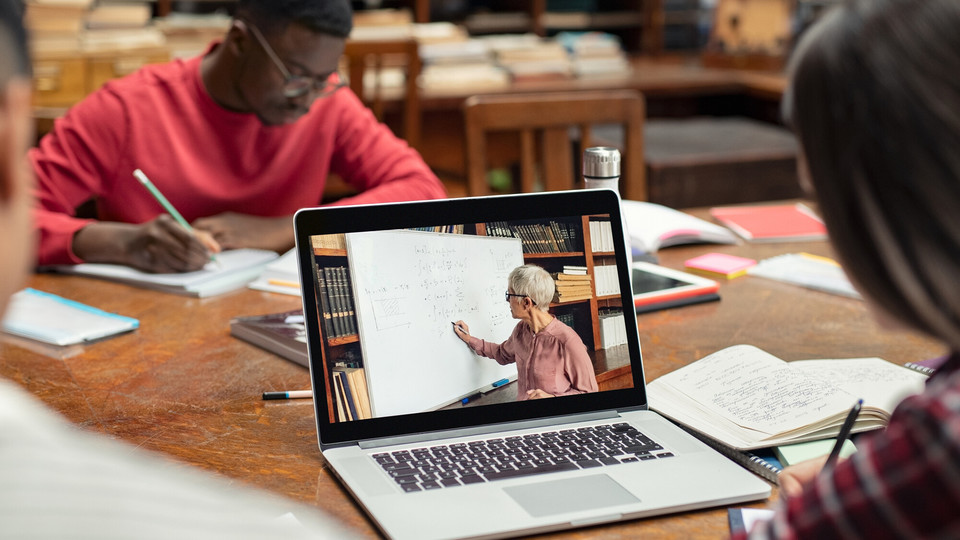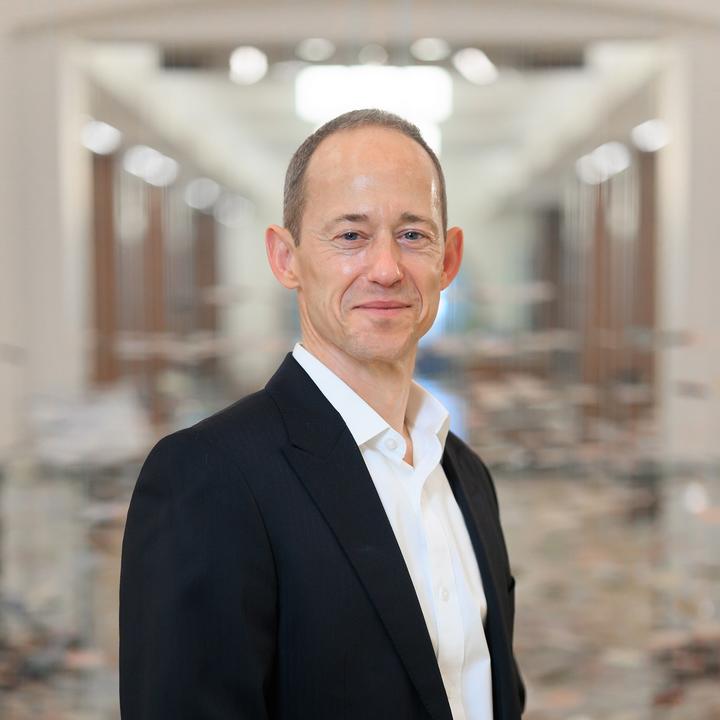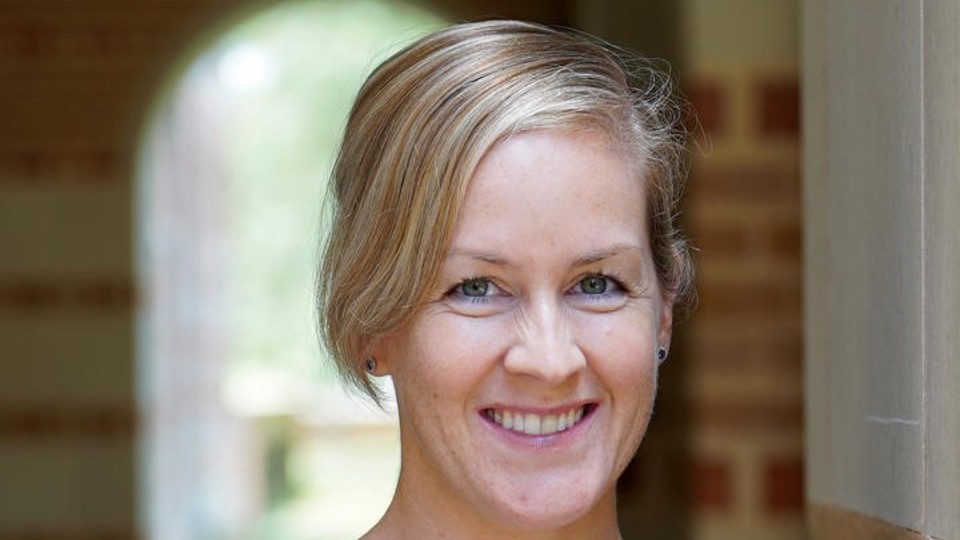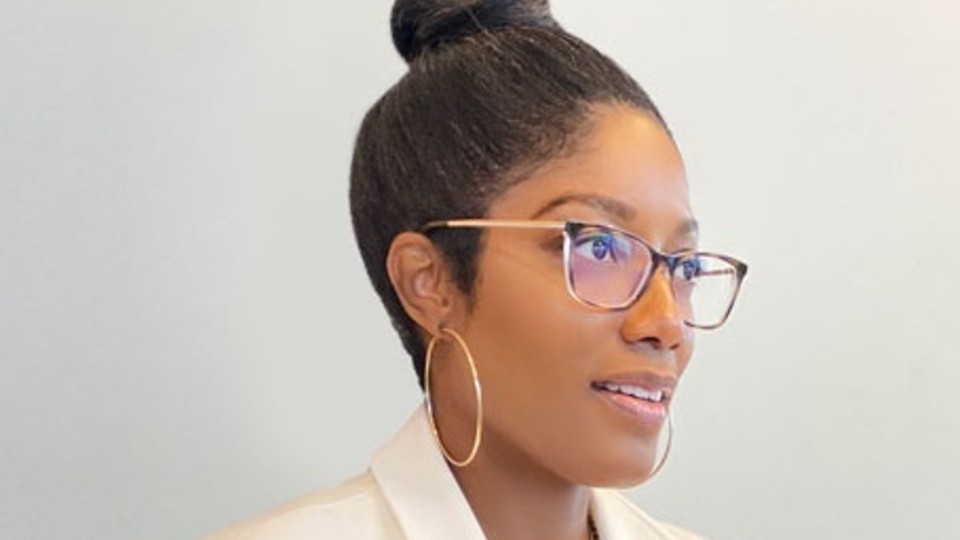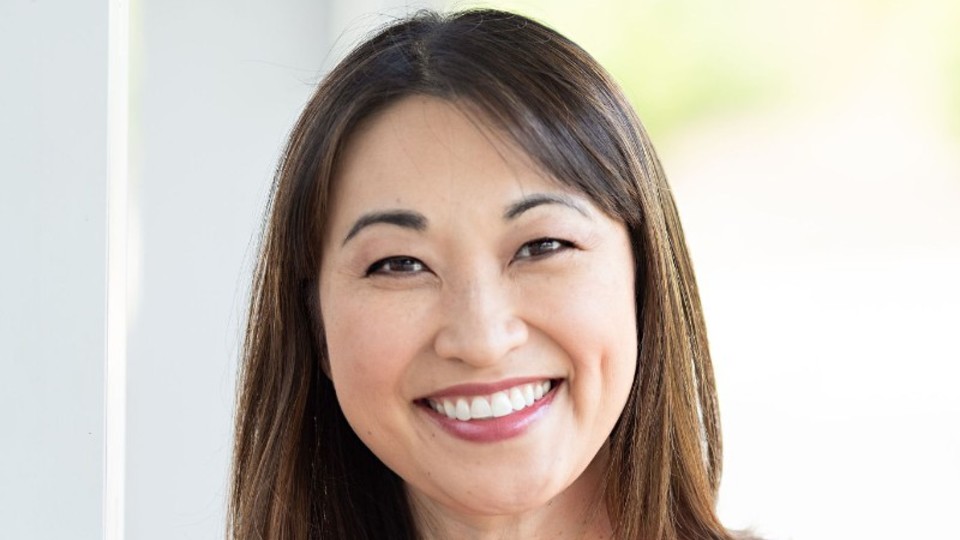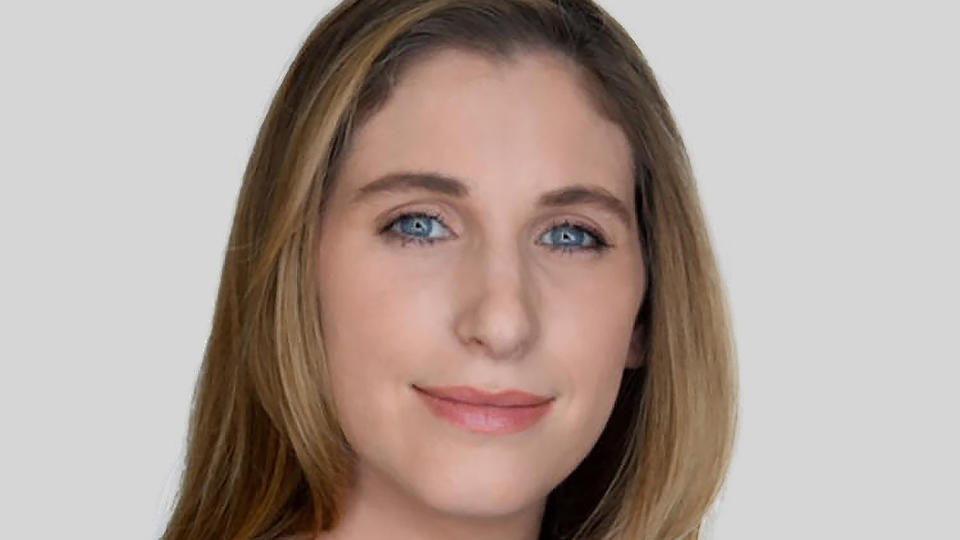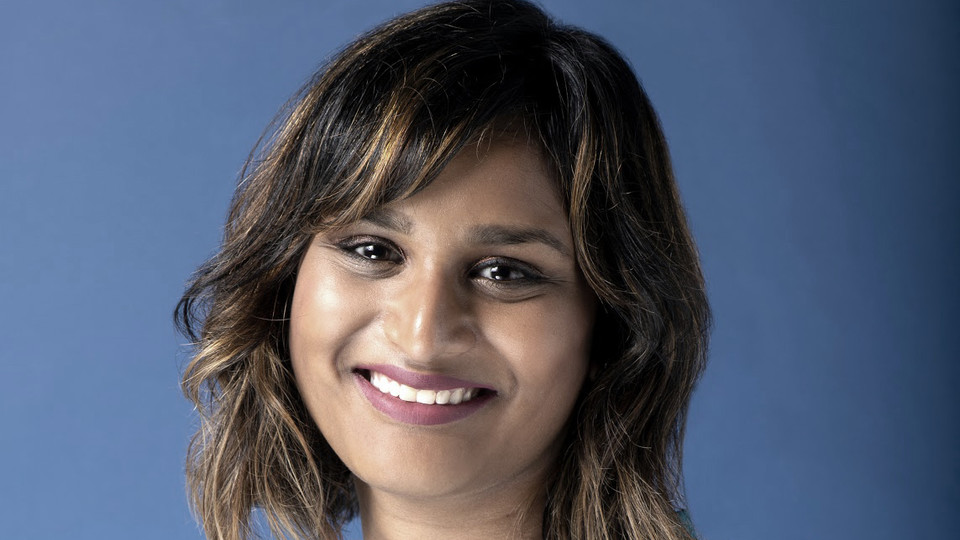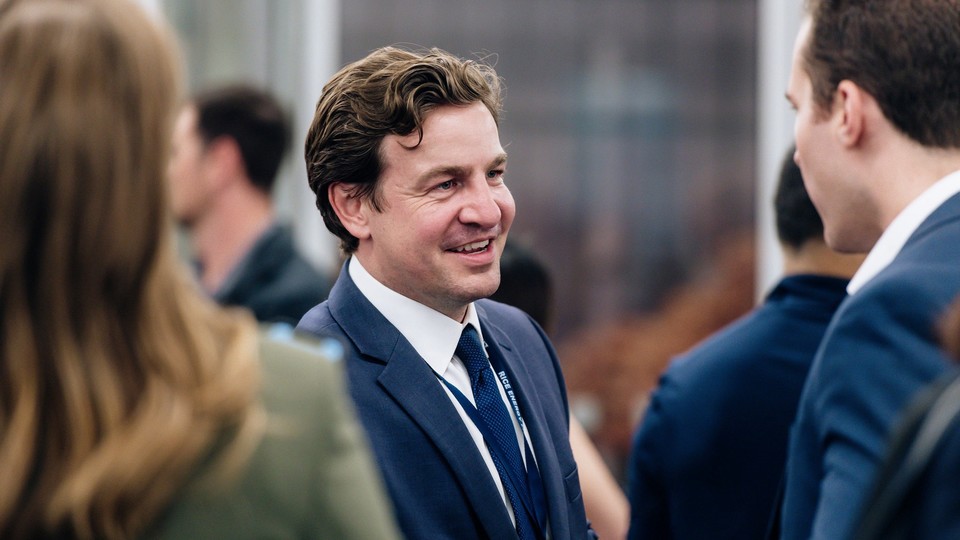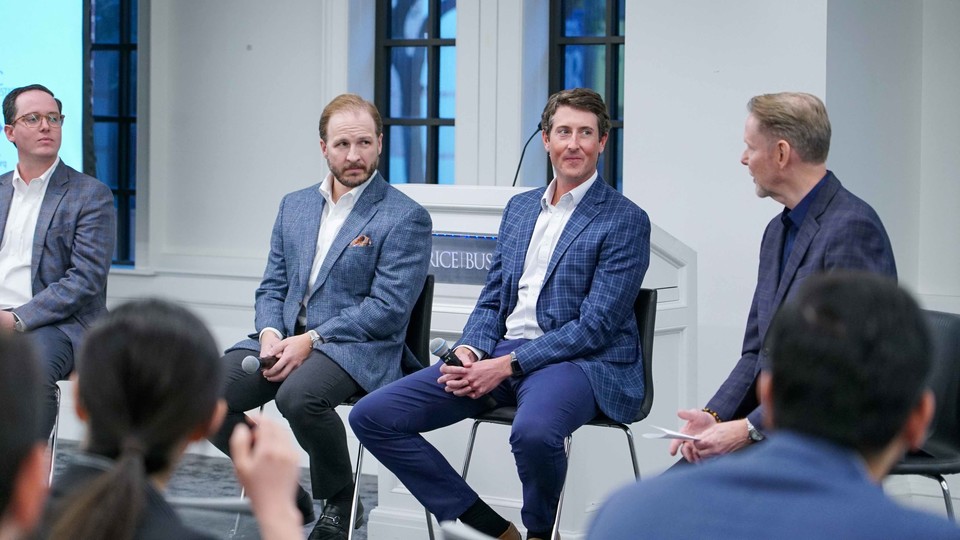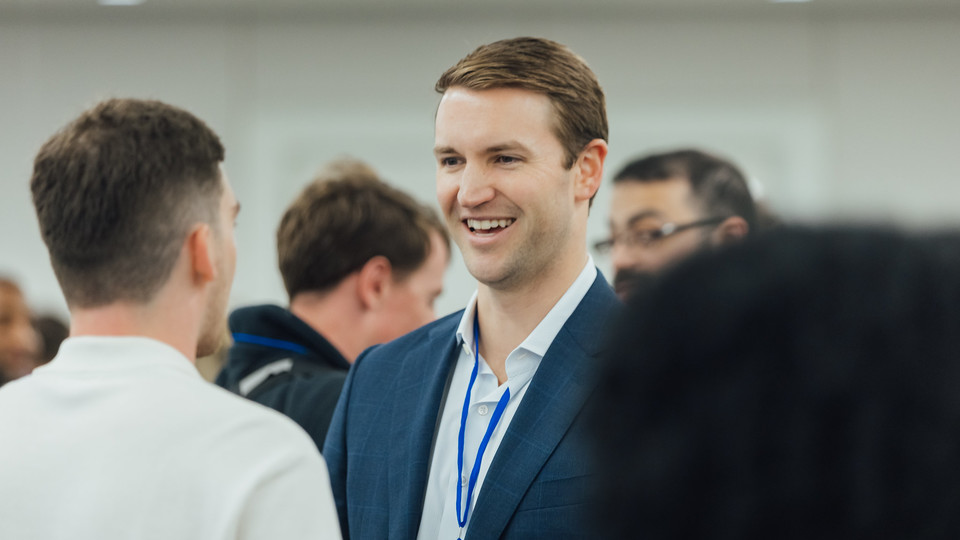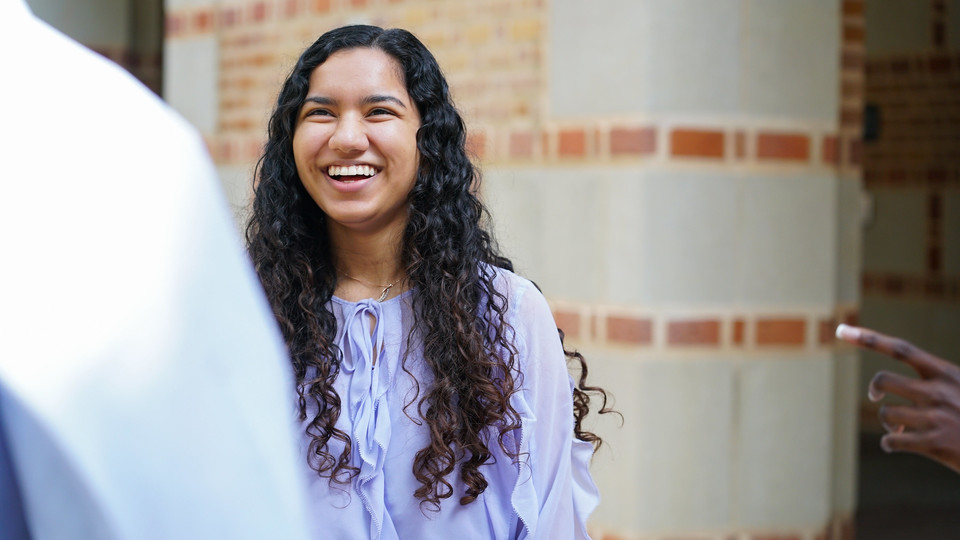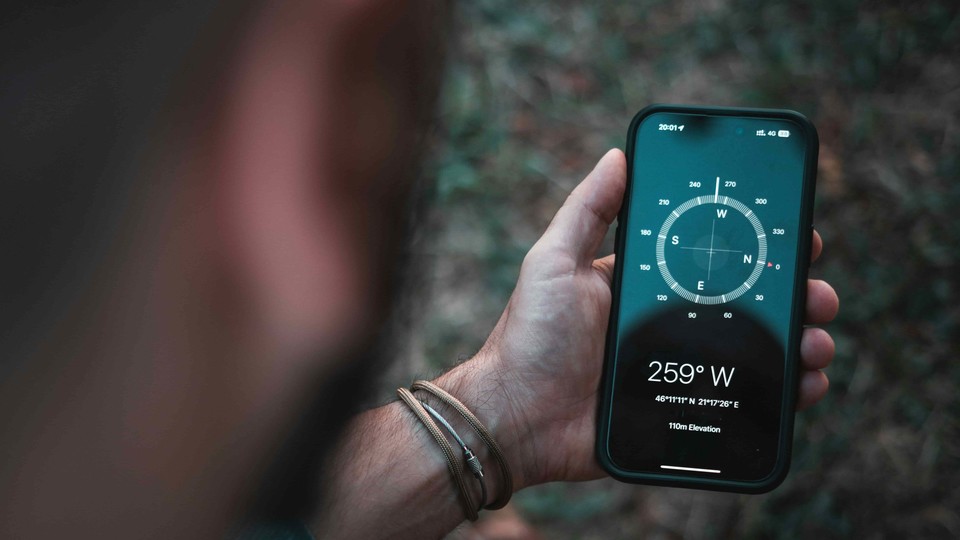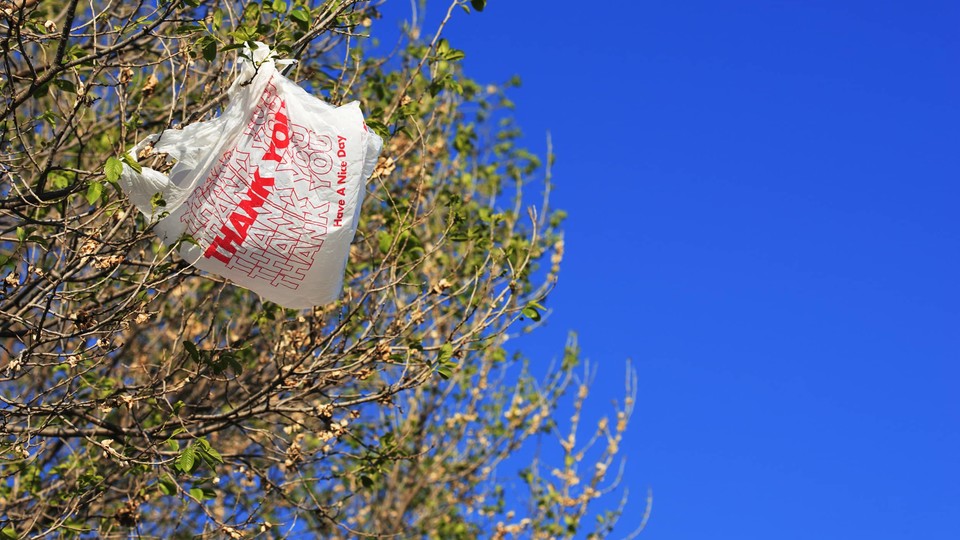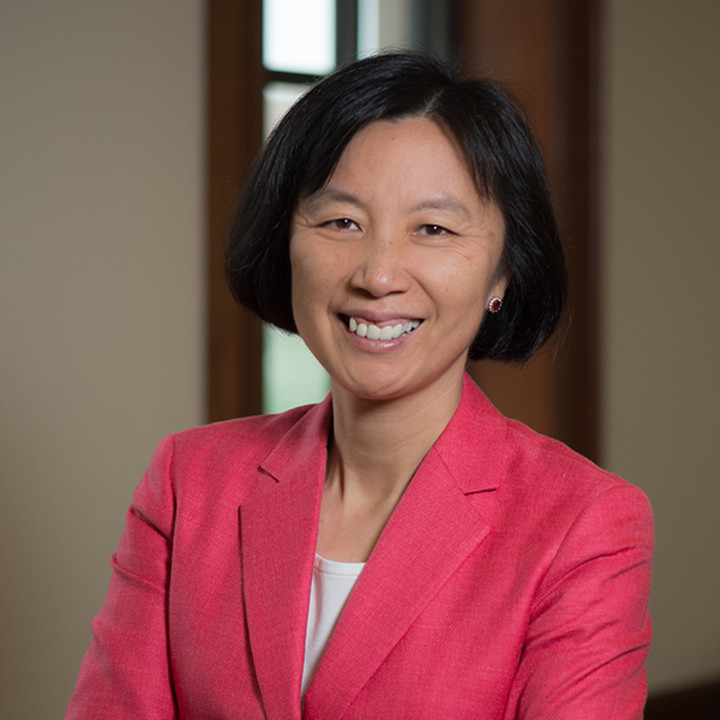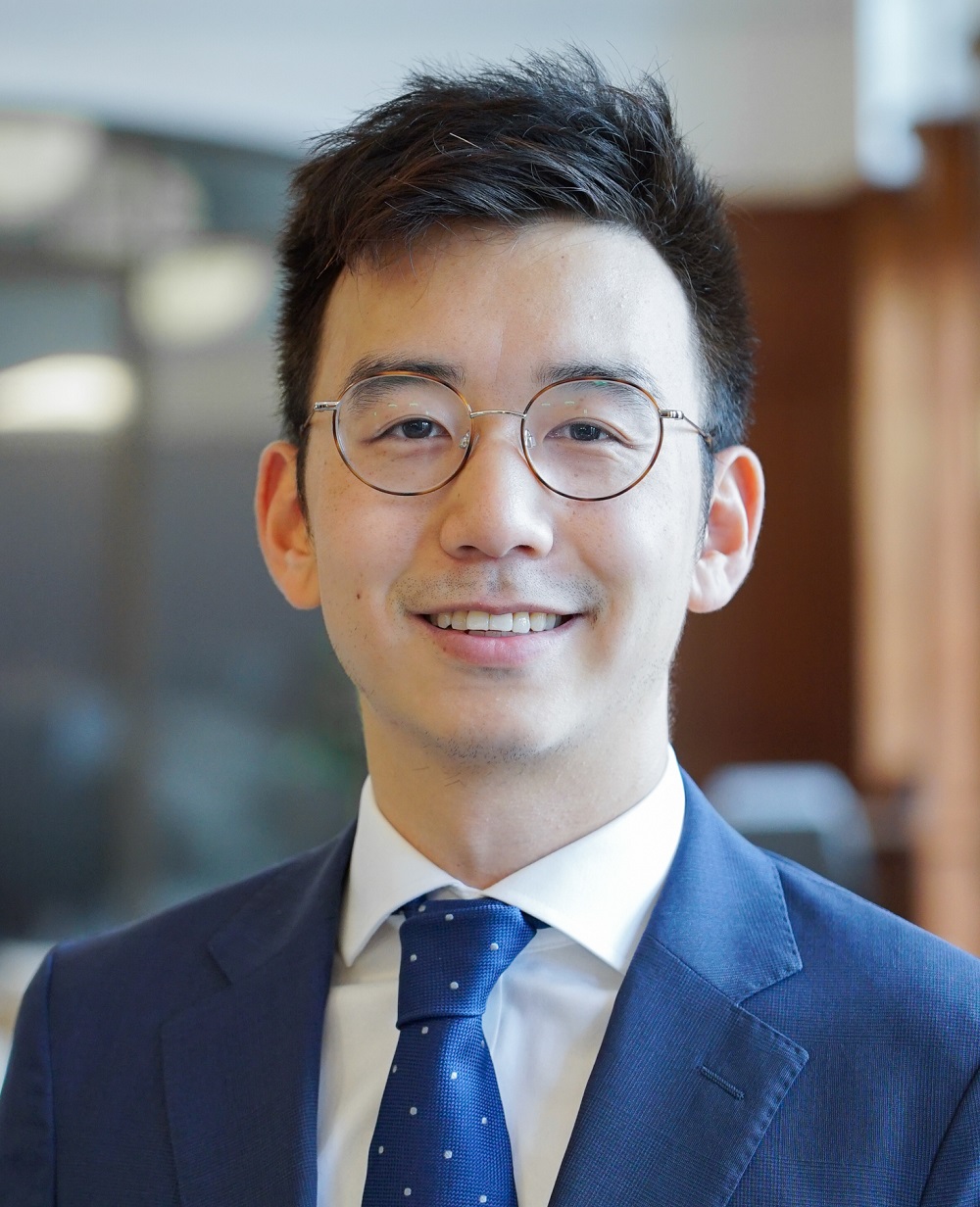
The hidden cost of working across time zones
Remote work lets people live where they want, but ‘time shifting’ can put a strain on team collaboration and communication.
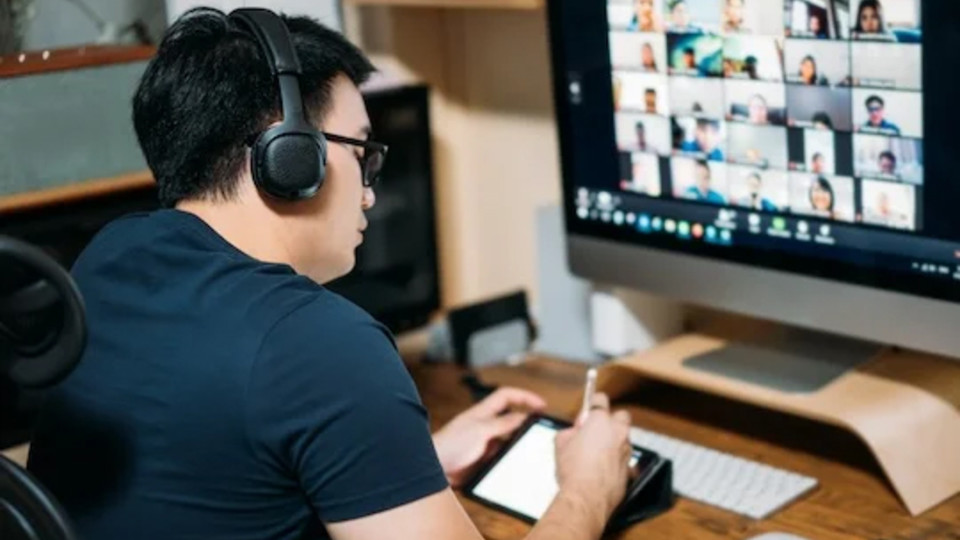
Remote work lets people live where they want, but ‘time shifting’ can put a strain on team collaboration and communication.

Remote working tools like Zoom and Slack have been around for more than a decade, but it wasn’t until the COVID-19 pandemic that remote work really took off. Since then, work-from-anywhere arrangements have allowed more workers to perform their jobs from the places they want to live, whether that is nearer to friends and family or in a resort town in the Rocky Mountains.
“Some companies now advertise job vacancies by time zone rather than geographical location,” says Tommy Pan Fang, assistant professor of strategic management at Rice University’s Jones Graduate School of Business. “In one sense, it is a win-win: Companies deepen their talent pool, and workers have more opportunity. But living in one time zone while working in another can affect the way employees communicate and collaborate.”
The research, “Working Around the Clock: Temporal Distance, Intrafirm Communication, and Time Shifting of the Employee Workday,” by Fang, Harvard University’s Prithwiraj Choudhury and Georgetown University’s Jasmina Chauvin, found that strategically aligning employees along a North-South axis could improve team productivity.
“An East-West distribution of workers could be fine for teams that perform routine tasks,” Fang said. “But when projects depend on synchronous collaboration and communication, a firm might benefit from intentionally aligning workers along a shared time zone.”
The impacts of temporal distance
If team members are distributed across multiple time zones and everyone works standard business hours in the time zone where they reside, the overlap between their workdays will be less than it would if they all worked in the same time zone. Differences in working time are called “temporal distance,” and they limit the hours in which synchronous communication can take place.
Talking person-to-person in a video or phone call can play an important role in collaborative projects — speaking is usually faster and conveys tone better than emails do. If opportunities to talk with collaborators are limited, it could slow work on some projects. But it’s not clear how much this type of communication is being affected or even if synchronous communication is what is affected the most.
To address these questions, the research team analyzed communications data from more than 12,000 employees at a Fortune 100 multinational firm with operations around the globe. Published in the journal Organization Science, the research found that employees do something called “time shifting” to counteract the effect of temporal distance. This involves employees choosing to engage in work tasks or communications to accommodate varying schedules or to meet urgent demands of the job.
Time shifting can potentially impact team communication patterns, work-life balance, collaboration dynamics and project management strategy.
“Working outside of regular business hours has a cost. It can negatively affect work-life balance and has a direct impact on your personal time,” said Fang. “But workers may choose to do it anyway to meet the demands of their job.”
‘Time shifting’ and daylight saving: How workers adapt
To test the relationship between temporal distance and internal communications, Fang and his colleagues designed a study that centers on daylight saving time, a practice observed in many, but not all, parts of the world. Twice each year, clocks are adjusted by one hour — forward in spring and back in fall. But this practice varies widely, even within the same country. For example, in the United States, Arizona opts out of daylight saving, meaning they share a time zone with California for only half the year. These semiannual shifts create an opportunity to measure the difference an hour makes — before and after a time change.
The team analyzed the Outlook and Skype records of the Fortune 100 firm’s scheduled calls and meetings, unscheduled calls, instant message chats and email messages. Its employees were based on every continent except Antarctica, including numerous jurisdictions that don’t adopt daylight saving time such as India, Argentina and Malaysia. The research found that a one-hour increase in temporal distance — that is, when daylight saving time occurred in one jurisdiction but not another — reduced synchronous communication by 11%.
“This was less than we expected,” said Fang. “The loss of an hour from the workday represented a 19% loss in the overlap of business hours. So proportionally, communications went down less than opportunities to communicate did.”
Houston/Chicago vs. Houston/Orlando
The study observed an increase in the volume of communication taking place outside of standard working hours. Workers who have strong collaborative relationships and perform tasks that are not routine were more likely to time shift. The findings raise questions about what type of work is best suited to geographic distributions that span multiple time zones.
“When an employee’s role is collaborative and nonroutine, they place a premium on synchronous communication,” said Fang. “They adjust their workday to get their job done. But not everyone is able to do this, and firms might have lower productivity because of it.”
The study also observed that not all workers time shift equally. Individual characteristics like gender and cultural context may lead to disparities in productivity and engagement. For example, women are less likely to communicate outside of business hours than men are, possibly because of the added responsibility that many women assume in home life. Employees based in jurisdictions with stricter limits on working hours are also less likely to communicate outside of working hours. And if a firm’s management places a premium on synchronous forms of communication, these differences could lead to disparities in pay and career advancement emerging over time. Fang said this suggests that firms might benefit from favoring North-South distributions of their workforce.
Chauvin, Choudhury, and Fang. “Working Around the Clock: Temporal Distance, Intrafirm Communication, and Time Shifting of the Employee Workday.” Organization Science 35.5 (2024): https://doi.org/10.1287/orsc.2023.17558.
This story originally appeared in Rice Business Wisdom and was lightly edited for Rice News.
You May Also Like

Rice University’s Jesse H. Jones Graduate School of Business today announced the launch of its Graduate Certificate in Healthcare Management program, a 10-month, credit-bearing professional credential designed for current and aspiring leaders seeking deep expertise in the business of healthcare.
2 Houston schools lead 2025 rankings for top entrepreneurship programs
Rice University and the University of Houston have topped The Princeton Review and Entrepreneur’s lists of the best graduate and undergraduate schools for entrepreneurship studies for 2025.
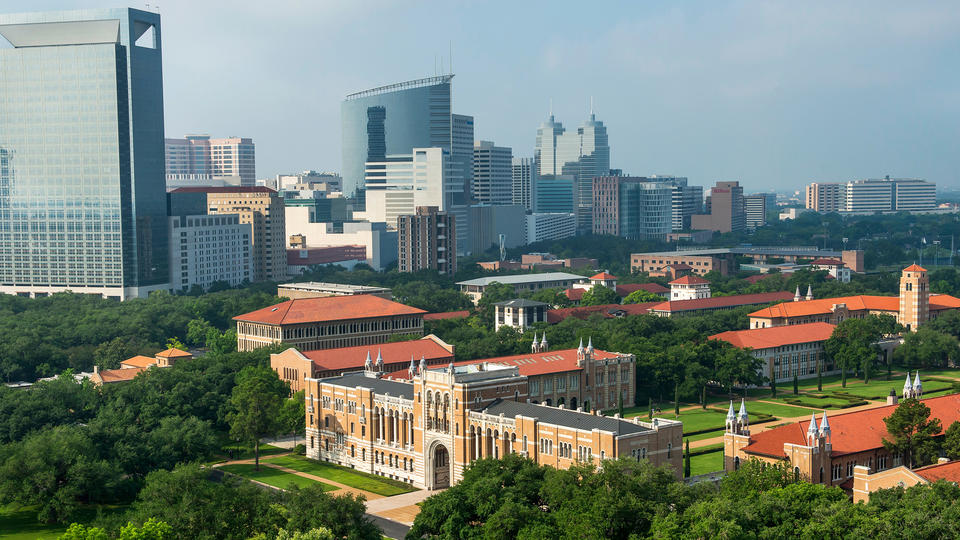
Can Hierarchy Conflict Actually Help Teams Thrive?
Disputes over workplace influence can ruffle feathers — but depending on their motivation, they can also foster growth and strength.


Based on research by Daan van Knippenberg (Rice Business), Maartje E. Schouten (Erasmus) and Lindred L. Greer (Michigan)
Key findings:
- “Conflict hierarchy” happens when members of a team have disputes in competing for influence and status.
- Academic literature on the topic tends to assume that self-interest is the primary driver.
- Daan van Knippenberg and his colleagues suggest that hierarchy conflicts can stem from a desire to benefit the team. When driven by such prosocial motives, these conflicts are expressed more directly and with less intensity, leading to more positive team performance.
In every team, there is a hierarchy. And in every hierarchy, there is competition for status.
In hierarchy conflict, team members seek to differentiate themselves to acquire socially valued resources like acknowledgment and influence. Senior members of a team might jockey for leadership roles or to guide the team’s mission. Junior team members sometimes compete for even informal recognition that could set them apart from peers and accelerate their climb up the corporate ladder.
The potential costs of hierarchy conflict are well-established in academic literature. Team members who engage in it might refuse to share their knowledge, reducing the flow of information and inadvertently hindering decision-making — all to maintain an advantage over internal competition.
But research by Daan van Knippenberg (Rice Business), along with colleagues at Michigan and Erasmus University in The Netherlands, challenges conventional wisdom, arguing that hierarchy conflict isn’t always a bad thing.
“It is certainly true that there can be a tension between the interest of an individual and what is best for the team as a whole,” says van Knippenberg, the Houston Endowed Professor of Management. “Actions that serve one team member’s career goals are often not the best way to achieve the team’s mission.”
“When a team member is primarily motivated by this shared outcome, it could create significant differences in how hierarchy conflicts play out.”
When is Hierarchy Conflict Good?
Hierarchy conflict can potentially serve the collective good, van Knippenberg and colleagues argue in the top journal Organization Science. When conflict is motivated by the broader interests of the team, it could actually improve rather than harm group performance. That’s because, in these situations, individual and team interests are aligned.
“It is a popular idea that all hierarchy conflict is bad and should be avoided at any cost,” says van Knippenberg. “But we argue that hierarchy conflict is not always self-serving, and the motivation for it could have a significant effect on its outcome.”
Consider the case of a company’s team managers competing for resources on an upcoming project. Each of the managers seeks to gain the favor of company executives so that resources will be allocated to their team. It is possible — even probable — that some of these managers are motivated by self-interest. After all, promotions and bonuses are given to people who show they can seal the deal.
But the managers could also earnestly believe their teams will make the most of those resources — that they really are best positioned to perform for the benefit of the firm.
The Motivation for Conflict is Key
To explore why people have different motivations in conflict over status or hierarchy, van Knippenberg and his team used something called interdependence theory. This theory suggests that it’s natural for people to have “pro-self” motivations and act in ways that focus on their own interests. Interdependence theory also argues that people can, at the same time, have “prosocial” motivations and act with the collective good in mind — depending on their deeper goals and values.
“Engaging in hierarchy conflict for prosocial reasons may occur less often than it does for pro-self reasons,” says van Knippenberg. “But when it does occur, it could be a more constructive force.”
The researchers created a theoretical model that predicts how these differences in motivation play out in practice. It predicts that when hierarchy conflict is motivated by a team member’s self-interest, it can lead to intense conflicts that are detrimental to team performance.
“When someone is trying to gain respect and recognition, they might challenge other team members or interrupt their peers,” says van Knippenberg. “Not only can that have a negative impact on team dynamics, it also limits the number of perspectives being expressed and how much information is actually being exchanged.”
But when hierarchy conflict is motivated by the team’s collective interest, the conflict itself tends to be a little more low-key. It is expressed more directly and less intensely, which could have the opposite effect, facilitating an exchange of ideas and increasing the flow of information between team members.
CHECK OUT THIS EPISODE OF OWL HAVE YOU KNOW
Managing Hierarchy Conflict
For management to deal effectively with hierarchy conflict, it’s important to consider motivations so they can anticipate what effects there will likely be. While the study of hierarchy has grown in recent years, it tends to focus on its negative aspects.
“We wanted to add nuance to this conversation, and shift how scholars think about hierarchy conflict,” van Knippenberg says.
“When team members engage in this type of conflict for prosocial reasons, the effects might not be so bad. But it is also not the same as acting out of altruism. In the context of a team, the self is a part of the collective, and every team member benefits when the team achieves its goals. When a team member is primarily motivated by this shared outcome, it could create significant differences in how hierarchy conflicts play out.”
Schouten, van Knippenberg, and Greer (2024). “Hierarchy Conflict: Causes, Expressions, and Consequences,” Organization Science.
Ph.D. Area Advisor - Organizational Behavior
Never Miss A Story
You May Also Like
Keep Exploring
Women's Entrepreneurship Day: Celebrating the Female Entrepreneurs of Rice Business
In honor of Women’s Entrepreneurship Day, we’re proud to celebrate the incredible female entrepreneurs in our community. Recently ranked as the No. 1 graduate entrepreneurship program for our sixth consecutive year, it’s no surprise that we have so many talented women leading innovative businesses. Hear from our students and alums as they share their entrepreneurial journeys, unique strengths and insights.
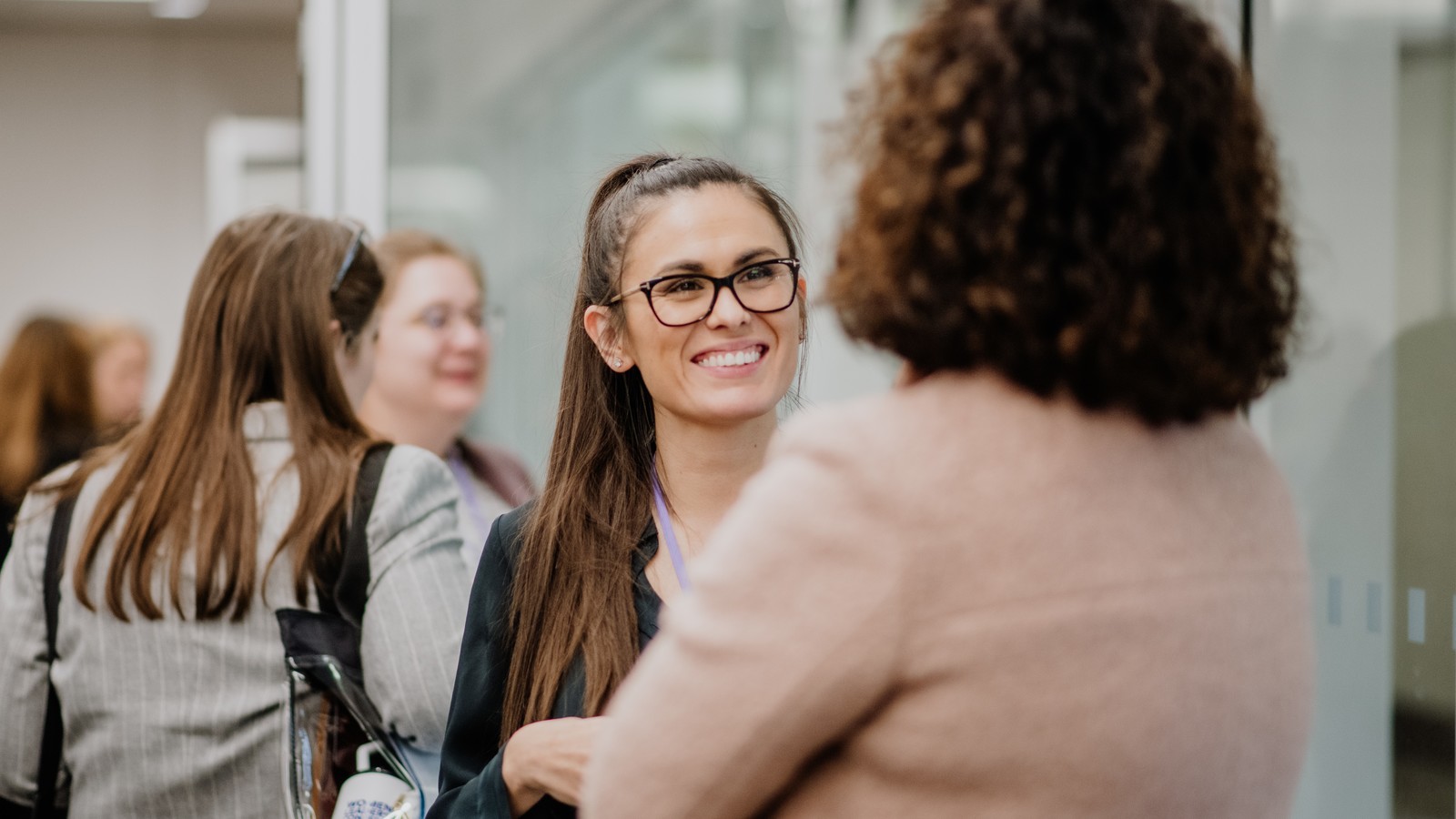
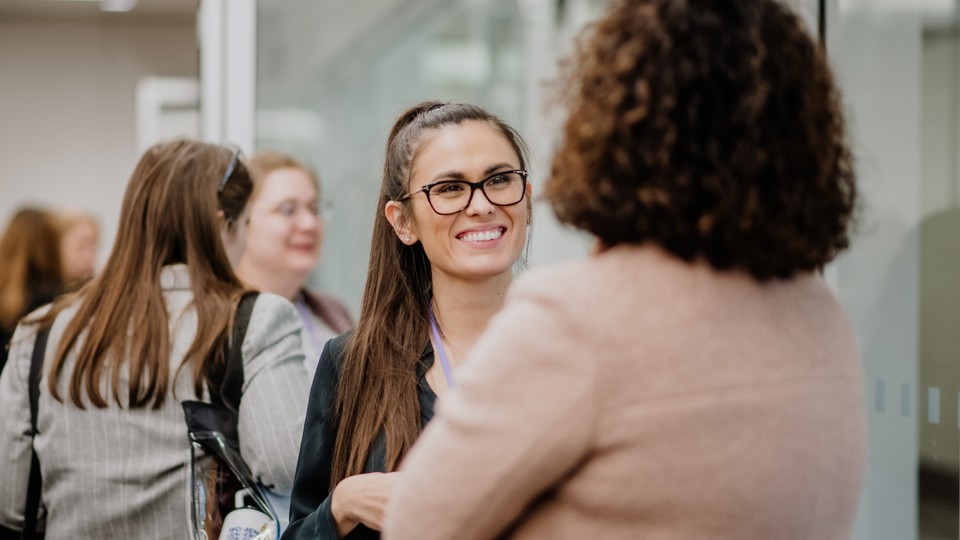
In honor of Women’s Entrepreneurship Day, we’re proud to celebrate the incredible female entrepreneurs in our community. Recently ranked as the No. 1 graduate entrepreneurship program for our sixth consecutive year, it’s no surprise that we have so many talented women leading innovative businesses.
Hear From Some of Our Student Entrepreneurs
BECKY JACKSON
Founder & CEO of ONGUARD
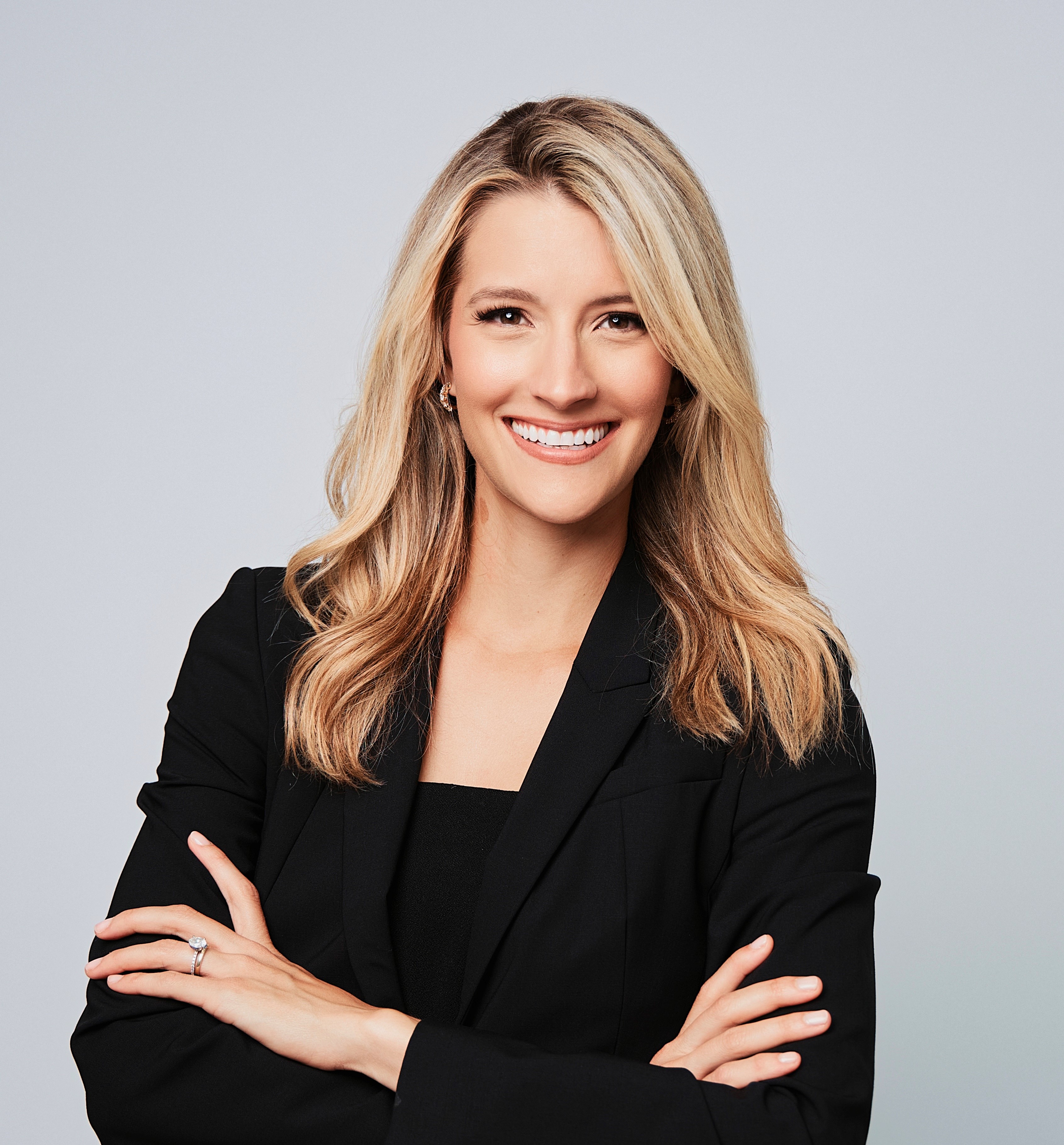
What is your business or idea, and what inspired you to create it?
ONGUARD is a platform that helps businesses and individuals easily book licensed, off-duty police officers and security professionals for their events. I’m committed to making personal security services more accessible and affordable.
What unique strengths do you think women bring to entrepreneurship, and how have they contributed to your success?
I believe female entrepreneurs exemplify strengths like empathy, exceptional relationship-building, adaptability, meticulous attention to detail and remarkable resilience. As a founder and leader, I aim to cultivate empathy, collaborative leadership and strong relationships to drive growth and innovation.
What’s a lesson or piece of advice you wish you’d known when you started out as an entrepreneur?
You are never too old, too experienced or too established to reinvent yourself, launch a business or solve a problem that ignites your spirit. Many aspiring entrepreneurs get stuck comparing themselves to young tech founders or viral success stories. But the most compelling entrepreneurial journeys are those fueled by lived experience, deep industry knowledge and genuine passion. Your age is not a limitation — it's your greatest competitive advantage. After all, Vera Wang entered fashion design at 40!
KATHLEEN PERLEY
Founder & CEO of DemystifAI
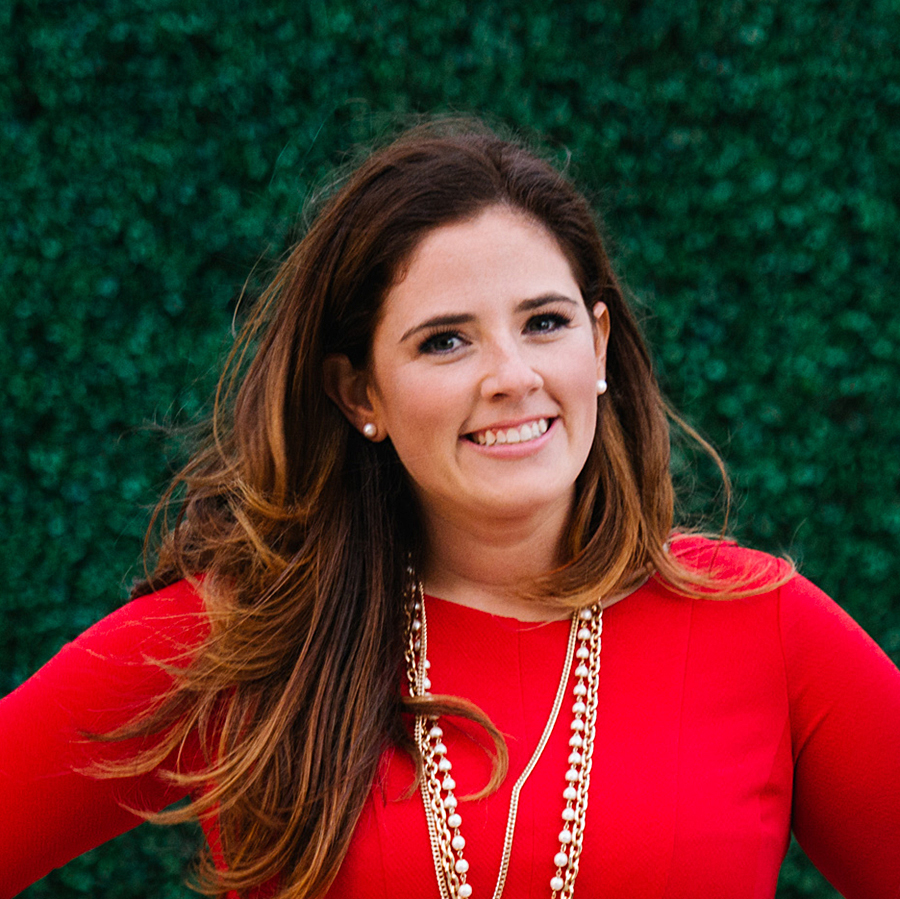
What is your business or idea, and what inspired you to create it?
My new company, DemystifAI, is an AI education and consulting company dedicated to helping businesses unlock their untapped potential through the strategic adoption of artificial intelligence. The idea for the company came to me while teaching my first class at Rice University, where I fell in love with helping people overcome the intimidation factor of AI and identify pilot projects that drive meaningful results for their business.
What unique strengths do you think women bring to entrepreneurship, and how have they contributed to your success?
My ability to juggle multiple tasks and build connections has been a major strength that significantly contributed to the success of my first business, DECODE. As an entrepreneur, especially in the early days, I had to wear many hats, so multitasking was crucial for our growth. Additionally, building connections not only helped me attract great talent over the years but also led me to a mentor who assisted me in selling the company to private equity 18 months ago.
What’s a lesson or piece of advice you wish you’d known when you started out as an entrepreneur?
Part of the reason I sold the company was that, as a young female entrepreneur, I felt I might be holding my team back, thinking the company needed a more formal CEO to lead over 70 employees. While I don’t regret selling, I realize in hindsight that I let imposter syndrome get the best of me. My advice to all female entrepreneurs is: don’t let feelings of imposter syndrome stand in the way of achieving your success.
VENI PETER
Founder & CEO in Healthcare Industry

What is your business or idea, and what inspired you to create it?
I once had an illness that required me to drive nearly three hours every week for adequate medical care. So, I quit my job at Amazon, acquired brick-and-mortar medical practices around rural India and converted their services online to increase accessibility to basic medical care and diagnostics! I solved my own problem, not realizing at the time that it was a significant issue for many others as well.
What unique strengths do you think women bring to entrepreneurship, and how have they contributed to your success?
Women excel at incorporating high emotional intelligence into their leadership style, making them highly successful and impactful leaders.
What’s a lesson or piece of advice you wish you’d known when you started out as an entrepreneur?
Fail more! We learn more from our failures than our successes. We as women have a lot to prove and put a lot of pressure on ourselves to succeed every time. Give yourself space to fail.
You May Also Like
Keep Exploring
Rice MAcc Opens Career Opportunities
The world’s financial markets are demanding greater corporate transparency and higher quality financial reporting. As a result, there is growing need for highly trained accounting professionals with superb critical thinking skills and integrity.
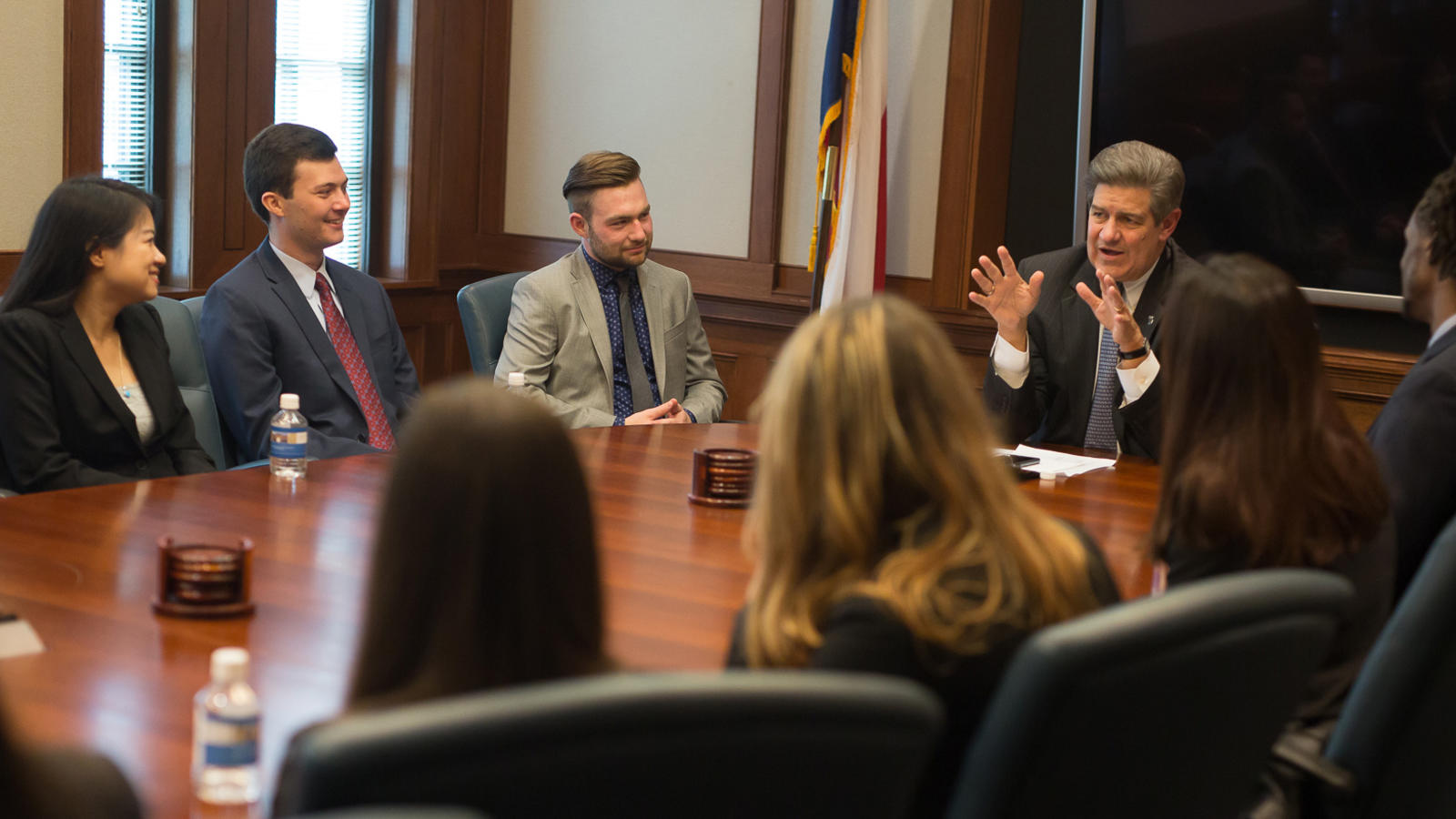
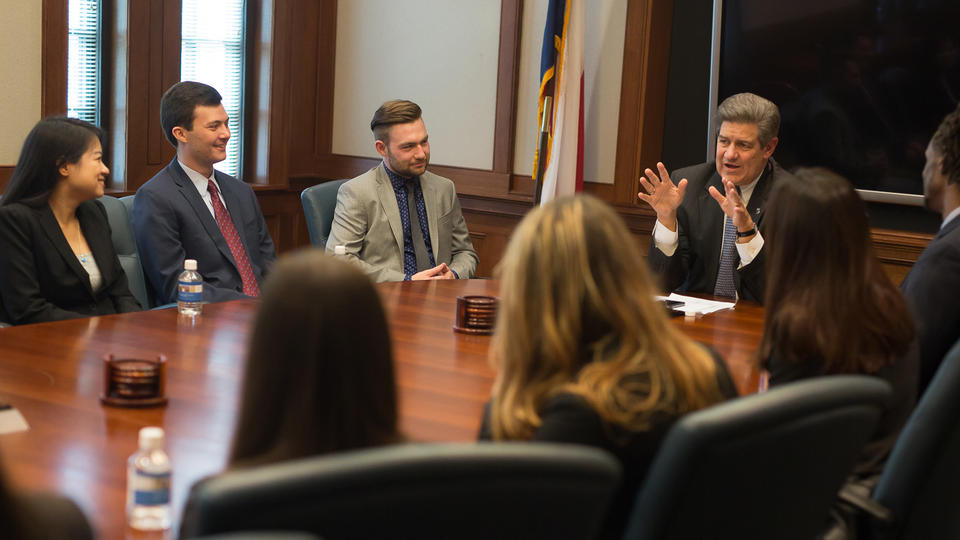
Be a Part of the Rice Master of Accounting (MAcc) Program
The world’s financial markets are demanding greater corporate transparency and higher quality financial reporting. As a result, there is growing need for highly trained accounting professionals with critical thinking skills and integrity.
The Rice Master of Accounting (MAcc) program offers this training, opening the door to a strong starting salary, an accelerated timetable for professional advancement and the lifelong prestige of holding a CPA license. Come be a part of it!
Benefit From Personalized Career Counseling and Workshops
Before starting our program in the fall, each student completes an online career course to prepare for the job search process. Then, at the start of the fall semester, MAcc Director Professor Ben Lansford meets with incoming students to determine their job and career goals. Students tell us they deeply value this personalized care and attention. It’s a key example of the value provided by our intentionally small program.
Interested in Rice Business?
Experience Rewarding Job Placement and Career Growth
Your Rice MAcc degree opens doors to an array of professional positions. Because accountants are in demand across all sectors of the economy, a Rice MAcc degree equips you to find an accounting career tailored to your professional passion. Rice MAcc students graduate with highly competitive skills, and we are proud of our strong relationships with firms and corporations eager to recruit our students. Most of our graduates take their initial jobs in one of the “Big Four” public accounting firms (Deloitte, EY, KPMG, and PwC), which are consistently ranked among the best places to work. Other graduates pursue corporate accounting, consulting, banking and not-for-profits. We’re extremely proud of how well our students perform on the job market. Our students are recruited for full-time positions while still completing their studies, with a historical placement rate before graduation of nearly 100%. Check out our Class Profile and Student Profile pages to see where our students have started their careers.
The Rice MAcc can be your fast track to a fulfilling and lucrative career in business. In addition to immediate job opportunities, a Rice graduate degree offers excellent employment prospects throughout your career. Seasoned MAcc alumni now have job titles such as Audit Partner, CFO, CEO, Executive Vice President, and Head of Strategy and Planning, and Managing Partner.
Interested in learning more about our program or the career opportunities the Rice MAcc opens up? Email us at RiceMAcc@rice.edu.
You May Also Like
Keep Exploring
Keep a Founder’s Mentality feat. Dan Tinker ’04
Season 4, Episode 28
How do you take a business from bankruptcy to an $18 billion acquisition? Dan, CEO of SRS Distribution, shares the journey that led to Home Depot’s acquisition of SRS — one that turned many of his frontline employees into millionaires.
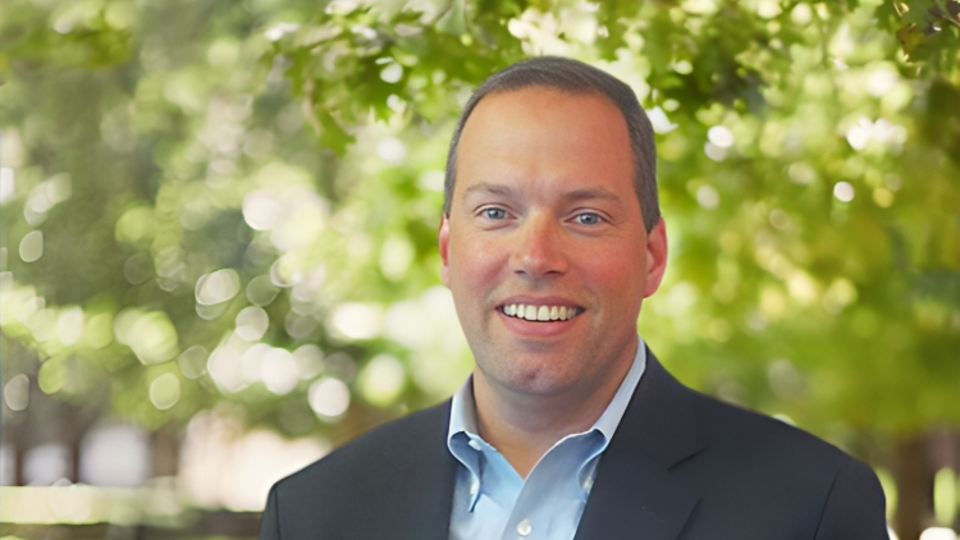
Owl Have You Know
Season 4, Episode 28
How do you take a business from bankruptcy to an $18 billion acquisition?
Today’s guest is Dan Tinker, CEO and President of SRS Distribution and Rice Business alum. When Dan took over SRS, the company was bankrupt. But under his steadfast and visionary leadership, SRS profits grew rapidly over 16 years, culminating in an acquisition deal with Home Depot for $18.25 billion – the largest acquisition in Home Depot’s history.
Dan joins host Maya Pomroy ’22 to chat about the major deal and how it’s turned many of his frontline employees into millionaires. The pair also discuss Dan’s decision to pursue a Rice MBA at 26, his philosophy around leadership and his passion for philanthropy and supporting veterans.
Subscribe to Owl Have You Know on Apple Podcasts, Spotify, Youtube or wherever you find your favorite podcasts.
Episode Transcript
-
[00:00]Maya: Welcome to Owl Have You Know, a podcast from Rice Business. This episode is part of our Flight Path Series, where guests share their career journeys and stories of the Rice connections that got them where they are.
Dan Tinker never imagined he would be where he is today. From management trainee to having his company acquired by a behemoth publicly traded company for billions of dollars, the Executive MBA graduate tells us about his unique journey, what he believes are the hallmarks for success, and how the dynamic leadership qualities he gained at Rice have made all the difference.
Welcome, Dan.
[00:35]Dan: Thanks for having me. I'm thrilled to be here.
[00:38]Maya: Well, we're thrilled to have you. You have quite a story. You are the president and CEO of SRS Distributions. You've got over 26 years in the building products distribution industry. You started as a management trainee, and you've risen to president and CEO. And I'm not going to bury the lead here, SRS Distribution was recently acquired in March of this year by the Home Depot for an estimated $18.25 billion. Congratulations!
[01:10]Dan: Thank you. Yeah, we're pretty proud of that. It was a great outcome for everybody, and we're thrilled to be part of their family now. And it's been a great 16-year run with that company that we founded back in ‘08. It's been tremendous. And really proud of the wealth creation event for all of our employees. We were able to spread the equity of the company across all employees. So, with the event, not just our private equity partners got a great return, but 9,000 employees got to share in over $3 billion of proceeds, which is pretty amazing, life-changing for a lot of people.
[01:42]Maya: Absolutely, this didn't just fall out of the sky. This was years and years and years of work and effort. And I am so looking forward to hearing your story and your journey, from, really, starting at A&M, and majoring in the building products distribution area in that industry. So, what got you interested in that field?
[02:06]Dan: Actually, the real honest answer is, I was a terrible electrical engineer as a freshman at A&M and realized that was not in the cards for me. And I was fortunate enough to have some friends at A&M that had transferred into the industrial distribution program, which was in the college of engineering at A&M and loved it and said, “Hey, you've got a big, bold personality, and I think the electrical engineering is probably not a great fit. Why don't you check this out?” And I, thank goodness, I did.
So, switching majors early on. And I fell in love with the major, fell in love with the industry of wholesale distribution in this country. Basically, everything, all goods have to be sold through distribution to get to market in this country, whether it's food, whether it's electronics, whether it's building products, whatever it is. So, it’s a huge industry. It's not thought of very often. It's not, maybe, glamorous or sexy, but everything has to get through it to get to market or get to the job site or get to the home.
And Amazon's made it a little more popular because they really are, at the end, they're a distribution company that gets products to your doorstep. But we do the same thing. We just do everything in big, bulky, heavy things to construction sites. And we deliver today to over 15,000 job sites a day, heavy materials in full truckload format.
But yeah, so I started, fell in love with it at A&M, and was lucky to work for some amazing mentors right out of college that taught me how to do acquisitions, how to run a business, how to run an operating division. And I had people that pushed me way above, kind of, what I was ready for all the steps of my journey, including mentors pushing me to go get my Rice MBA at a pretty young age. I was the second youngest in my class, in my EMBA class, when I entered at 27, and then I graduated when I was 29.
[03:50]Maya: Wow. Well, let's talk about some of those people. Let's talk about, first of all, your friends that encouraged you to go into the building products distribution arena. Are you still friends with them?
[04:00]Dan: Yeah, absolutely. In fact, I was with a couple of them this weekend at the A&M-LSU game. We were tailgating, having a great time and reminiscing. But yeah, I'm very, very close to my A&M college friends from the program, as I am with my Rice classmates as well. We do a reunion trip each year, and they're great people as well.
[04:19]Maya: So, when you graduated from A&M in ‘96, take me on your trip, let's go down memory lane. So, you graduated and you started as a trainee. And I believe you were in one of the worst performing divisions, or was that later where you took it to the best performing division in a year?
[04:38]Dan: Yeah, that was early on. I was a management trainee at the corporate campus in Dallas for my first nine months, going through a rotation, learning everything from IT, marketing, sales, purchasing, HR. They were trying to rotate me through all the corporate departments, but I really wanted a P&L. I wanted my own P&L. I wanted to compete. We didn't have a single branch manager under the age of 40 at that time. We had 165 locations in the company, and I was 22, and I convinced the senior managers to give me the worst branch in the company. I said, “Look, how bad can I screw it up? It's already broken.”
So, they sent me to Little Rock, Arkansas, which is probably the last place I wanted to go on earth at the time as a Texan. But I said, “I'll go anywhere. I don't care. Give me the worst branch.” They said, “Okay, we'll let you do it, because if you fail, we'll just close it anyway. We're probably going to have to close it anyway.”
[05:30]Maya: You set expectations low, is that what you did?
[05:33]Dan: They did. Thank goodness. I did whatever I could to sell them to convince me to give me a shot, even though I had not been in the industry a long time. I just had confidence that I could inspire a team, I could build a team, and I could lead a team. And yeah, we took that branch from dead last out of 165 to, in our first year, we were branch of the year in the entire company.
So, pretty big. It's, kind of, funny, I actually give some of the credit to a book called Don't Fire Them, Fire Them Up, which I read when I got the assignment before I got to the branch. And it basically was a similar story of a guy that took over the worst Xerox location in the country in Cleveland. He turned it around from worst to first in one year. And I honestly followed the blueprint, probably the only time I've read a book and followed the blueprint perfectly in my entire career, but I did it very early on when I was 22. But it was everything, from setting a blistering pace at the outset, big, bold goals to stir people's souls, get all the wrong people off the bus, get all the right talent on the bus, and then do amazing things and lead people well. They all deserve good leadership. And there was a leadership board. So, again, I was taking over for a terrible situation, that it was pretty easy to upgrade, but yeah, we just got amazing success.
And it really came from recruiting a bunch of talent, giving them all the tools they need to succeed, and then getting out of the way and letting them do it because they were working for a kid that was half their age. But it was fun. It was a heck of a lot of fun. It really did springboard my whole career and gave me a credibility that launched me into regional jobs and then a VP job. But by the time I was 26, I was vice president, and then I entered it and got pushed into the Rice program pretty young because they were trying to groom me for a president role. So, it's amazing how just one opportunity, if you can seize it and do well, can springboard your whole career.
[07:15]Maya: So, in terms of finding that talent, you know, and then getting out of the way, which resonates with a lot of leaders, I hear that a lot, of, you know, you got to acquire the right talent, and then you just gotta let them do what they're really good at doing, and to keep them inspired and motivated and to keep moving forward, and to keep them, also. Talent acquisition and then retainment is really, really vital. So, when you look at someone, what are those leadership qualities that really stand out that you look for?
[07:47]Dan: Well, first and foremost is work ethic and attitude. I think intellect is not the first thing on the list because most people, in what we're, I mean, we're not running SpaceX and building rockets. We're selling building materials for more than we pay for it and getting it to a job site. So, it's about grit and work ethic and passion and people that care about other people.
So, I look for servant leaders that are humble, that know that they're not the smartest person in the room, that every one of the people they lead are smarter than them at something, and they need their humility and respect. And to me, that's always been a secret weapon of leaders in our group, is, the team counts more than the person, the leader is there to get the best talent on the team, motivate that talent, because inspired talent, if it's not inspired doesn't do anything for you, so, you have to motivate the talent. And how you do that is you give them a chance to win. You ask them, “What do you need to compete? What do you need to win customers? More inventory, more trucks, better pricing, better service. What do you need us to put around you to win on the playing field of business? And I'll give it to you all. I'll provide everything you ask for, but I do expect results in return, which means I need your best effort. I need you to out-hustle the competition. I need you to work harder than anybody else.”
And that's, kind of, the mindset. And we just…it all comes down to culture and vision then inspiration, and then holding people accountable. Because you're going to find people that can't do that, won't do that, don't want to do that at different parts of their career. They're just not engaged. And it takes some discipline to be willing to part ways with people that just are dragging the team down, pulling the team back, or just aren't all in. And I don't apologize.
I tell every person that ever wants to come work for us, we are a fast-paced, high-growth company, we always will be. If that is too much for you, then you should go work for our competition. I have no problem with that. You can work a 40-hour week and you can get in at 8:00 and leave at 5:00. Our employees get speeding tickets on the way to work, not on the way home, because they can't wait to get there. They think of work as their hobby and their passion and their fun time, and then they go home to their families to relax and rest. It's competitive but it's a team sport. And that's, kind of, the mantra we've always pushed.
[10:01]Maya: It's a team sport, 100%. Those are the most successful organizations where it is, it's a team sport. And it's not just written on the wall. It's actually lived and breathed and it resonates with people. So, when you were in your 20s, because you said you were one of the youngest in your EMBA class, so, tell me what propelled you to go after this MBA. I know that you had mentioned that you had some mentors and some folks that were pushing you to do this. And why did you choose Rice? Was it just the location or was it, “I want to go to Rice.”
[10:32]Dan: No, I really wanted to go to Rice. As an Aggie, it was really tough for me to apply to UT's program, as you can probably imagine. So, it was, basically, I applied to A&M's program. They had one in the Woodlands at the time, so I was living in spring in North Houston, and I did apply to A&M, got into the A&M program, and got into Rice. But I really felt, if I could get into Rice, it would complement my A&M degree. I really thought Rice was an up and coming program at the time. It certainly was. It certainly proved to go on to amazing new heights under the current leadership, which I'm very proud to be a Rice alum as well.
But loved the school, loved the environment, loved the fact that it just got a brand-new building, recruited a lot of new faculty. And it just seemed like it was a good compliment to my undergrad degree. And so, yeah, it was an easy decision once I got into Rice.
[11:17]Maya: Can you tell me about some of your favorite classes and about your team? Were you broken up into smaller teams to do all of the work that you're required to do, all of the deliverables?
[11:29]Dan: Yeah, I had an amazing team my first year of six people that we're still all very good friends. We actually named our team Team Toast because we thought we were all toast after our first big exam. I don't think any of us did very well on our first test the first week or second week or our group project or something. And so, we renamed our team Team Toast. But we went on to do very well. And all of us, obviously, finished and had a good two-year run there. But, yeah, as far as my favorite classes that I remember, entrepreneurship, and then I had a private equity class that I loved the professor, and I just loved learning more about private equity in general. It's served me well. I've gone on to work for six different private equity firms and made them all great returns. And they've been great partners and allowed me to generate tons of wealth, like I mentioned at the outset, for so many other people and changed so many lives.
Private equity gets a bad rap in a lot of worlds, and it's so unwarranted, in my opinion. Where else in the world can you just have a, dream up an idea, build a team, go to a private equity sponsor, you don't have capital or come from a rich family, and go borrow the money or have them infuse your capital in your business to sell part of the company, and then they provide you enough capital to get as big as you could possibly be successfully?
And we've done that. We started SRS with only $12 million and bought the company, SRS, out of bankruptcy for $12 million. The company we just sold to for $18.25 billion, we paid only $12 million for just 16 years ago. And it made that much wealth creation, because we had three different great private equity sponsors for about five-year runs in the first, second and third phase.
So, I'm a big proponent of private equity. I'm not anti-public, but I do believe there's trade-offs of being private versus public. I love being private. I love not having to manage the company for quarters. I like managing the company for long-term success, not short-term success.
[13:26]Maya: You said that you bought it out of bankruptcy. So, tell me the history of the company.
[13:30]Dan: So, the group I went to work for out of college that I did the turnaround with was a company called Cameron Ashley Building Products. The management team tried to buy that company. It was actually public. We tried to buy it private in ‘99. And we lost the company to a strategic buyer. So, the management team, kind of, the senior officers moved on. They started to put the band back together and started another company in the industry called Shelter Distribution. And that's where I went after Rice. And they recruited me to be president of that company in ‘04, after I graduated. And then we sold that company in ‘05 to another company in the industry, another strategic that was a public company.
So, I worked for them for two years but couldn't stand the culture. They were, kind of, I was a big morale guy. They were a big process, GE-type management style. And I said, “Look, this just isn't for me. It's not the right fit. I don't believe in what you're selling and I need to move on.” And I did, I had to sit out a year to burn off a non compete. I worked with private equity as, kind of, a consultant. And then, we put the team together one more time. We bought SRS out of bankruptcy. It was a family-owned company that was doing really well until the housing collapse. And then during the housing crisis, it got over-levered, had too much debt, and basically the debtors put the company into bankruptcy.
So, we ended up buying it out of bankruptcy court for, again, like I said, $12 million. And the rest is history. We bought five other companies that first year and got to about breakeven in profitability. And it moved it from $30 million in sales all the way up to about $180 million in sales. And then, by the fifth year, we were already doing about $800 million in sales and making about $55 million of EBITDA.
So, we've done 135 acquisitions, bought 135 and integrated 135 companies all under one ERP system. We've opened over 250 Greenfield brand-new startup locations, and gone from 100 employees to 11,000 employees. So, it's been an amazing 16-year run and created a ton of wealth for our employees, created over 500 millionaires in the company, just from the employee group, including frontline hourly workers. Like, we have a forklift operator who retired 10 years early who never made more than $18 an hour. And he retired with $3 million of equity from the company, which is awesome.
[15:37]Maya: It's just changing lives, you know. Like, that must feel so incredibly rewarding to be able to do that. You're also very active in your philanthropic work, which I would love to talk with you about as well. But before we get to that, so did Home Depot approach you, or how did that work? Because it is their largest acquisition, correct?
[15:57]Dan: It is. It's the largest acquisition in the company's history. No, they did not. They played hard to get, for sure, the whole time. I always had them on our radar for where I wanted to end up, where I thought we would thrive the most in a strategic environment. We always had the opportunity to go public if we wanted and be a standalone public company. We were certainly big enough. We were getting too big to stay private equity backed at $10 billion at sale. So, we knew we had to do something to monetize for this generation and this group of investors. So, we put a short list of names of companies that we admired I thought we would be a good fit for, but Home Depot was absolutely my number-one choice.
And what happened actually, it's, kind of, a classic, in my opinion, a Coke versus Pepsi story. We got Lowe's interested in it because Home Depot wasn't giving us any time of day, but we got Lowe's interested to take a look at the company. And they started doing some real diligence and work and testing, you know, the company touring, looking at our tech stack, looking at our model. And they got more and more intrigued over time. They're very slow and methodical. They didn't pounce on anything. But they got far enough along that I think it was a credible threat that they were potentially considering making an offer to buy the company. And then when Home Depot got wind of that, their attitude completely changed. They got very…
[17:11]Maya: Funny how that happens, isn’t it?
[17:11]Dan: It's amazing how well competitive fuel added to the fire, but then, all of a sudden, Home Depot said, “Hey, yeah, all right, fine, we'll let Dan and his CFO come give us a pitch on why they think it's a good fit for us.
[17:26]Maya: But they already knew. They already knew why you were a good fit for them.
[17:29]Dan: Oh, yeah, they knew who we were. They knew what we were up to. I think they were pleasantly surprised, though, in the meeting that we were fully integrated, that we were on one ERP, that we are more of a platform for them for future growth than just a standalone entity that was, kind of, going to, maybe, be stagnant after they acquired.
And I think what we convinced them is, we are not just a great asset for you, but we can unlock future competitive advantage for you and really serve as your wholesale distribution platform for the pro while your retail side has been trying to crack that code and has been unable to for a long time. We accelerate that. We give you that immediate platform and get you years ahead of your competition now by giving you all the things we do that the retail side can't do, whether that's professional sales force, job site delivery, extending credit to customers, knowing the pro business, having, you know, a B2B mindset, not a B2C mindset, and having good technology, good customer-facing digital technology and customer-facing technology.
So, all of that surprised them. And then once they learned all that, they got super excited and said, “Yeah, we have to own this business.” And then, it's been a great marriage, so far. The deal closed in June. And so far, the two company cultures could not be more aligned. Both are, make money, have fun, give back, high growth, high morale companies, very proud of doing the right thing and being an admired company.
We do things right with integrity. We do things right for our employees, our suppliers, our customers. Nobody loses. Everybody associated with the company wins. That's how the model works. And so, it's a very ubiquitous, positive momentum. And it's the market leader. We're part of the world's largest building products company now, and it's also a Fortune 20 company, and we couldn't be any happier.
And the culture fit has been perfect. And it's hard to say that when you have a big… it's certainly not a merger when you have a $155 billion company buying a $10 or $11 billion company, but it's an acquisition. But, you know, we were a big company, all right, and it’s hard not to mess that culture integration up. And they've done a beautiful job leaving what they needed to leave alone, but also, being creative on adding value and integrating things that will add value to our competitive position, going forward.
[19:39]Maya: So, did you ever get a response back from Lowe's?
[19:44]Dan: Oh, yeah. I mean, obviously, we had to tell them we had signed an agreement to work exclusively with someone else. Didn’t tell them who it was. They obviously knew who it was.
[19:55]Maya: Yeah, they knew.
[19:56]Dan: And then when the deal got announced to Wall Street, because it being a public company, it was kept very quiet. For the most part, they knew. And obviously, we had to go through HSR review with the government that appeared from March to June, but it was out in the public by then. But by March, they knew and, kind of, suspected, I think, that that's who it was when they were told they can't get in our data room any longer and you can't do any more diligence working with some other party. They're smart guys. They knew exactly what it was.
[20:22]Maya: Sure. So, you'll be guiding SRS within a new structure in the Home Depot. And what opportunities are you the most excited about in terms of this additional growth in the future?
[20:34]Dan: Yeah, I'm just really excited about putting their power behind us, you know, not just their buying power, but they have huge corporate resources that we can lean on. They have great knowledge. They've done tons of work in the space at a much broader product offering than we have. So, leveraging their technology. A lot of people don't realize Home Depot is the fifth largest e-commerce company in the United States. So, they've got a huge e-commerce leadership position in our industry. They've got the leadership position in retail; and now, we're going to help get them the leadership position in wholesale.
And no one else in the industry has all three phases, has e-commerce, retail, and wholesale. So, we're really going to become the first omnichannel building products company in the United States. And super excited about that. And leveraging all of those cross-sale opportunities. We're really going to be able to allow contractors and builders to buy any way they want. They can buy online and pick it up at a store. They can buy online and pick it up at a distribution. They can buy online and have distribution deliver it to the job site. They can buy in a store and have it delivered to the job site. So, there's every single angle they have or could possibly want in any buying occasion or purchasing occasion. We've got it covered. And across the whole country, we'll, kind of, widen the aperture of our product focus because we've been very laser-focused on heavy R&R, remodeling and repair, items. But now, we'll get into more new construction, more cyclical items, because we want to be able to offer the cross-trade pro as well to be able to buy any product that they want for a job site or construction project.
So, I can't wait to unlock the product breadth and depth that their supplier base brings to our network. And then I can't wait for us to bring the customer service aspect of job site delivery and extending credit to the contractor and a professional sales force that they'd never had for the pro. So, blending those resources together is going to be super powerful. We just have to do it in a very slow, methodical, thoughtful way with our customer insight the whole way, and make sure it's a really good customer experience.
[22:34]Maya: And those are leadership qualities and skills that you have honed in on through your time at A&M and through your work experience and, definitely, through Rice. So, could you tell me an unexpected skill that you've discovered or honed that is crucial to leadership? I know it's a big broad question, but for those that are just getting started, like you were back in ‘96, what's that secret sauce?
[23:01]Dan: Well, those are two different questions that I'll answer differently, but they're going to be tied together. But the first thing I think that is the skill that I wouldn't have guessed coming out of business school that I think I've gotten honed in, and it served me very, very well, is, I think I have a really good ability to ignore the things that don't move the needle.
I mean, being a CEO and being in charge of everything, the whole enterprise, you have to know what's your highest and best use of your time. And I've always been able to really stick to the strong points that I had a good understanding of what's going to drive shareholder value creation, what's going to drive customer wins, what's going to drive supplier partnerships, what's going to drive growth.
And so, I refuse just to be bogged down by minutia that distracts me from, even though it may be important work, I put people around me that can get that important monotonous process-driven work done, but I make sure I stay focused on driving the growth of the company through acquisitions, new partnerships, recruiting talented executives, pushing us to do more in digital and technology than anybody else in the industry.
So, I think, having a big, bold vision, and then making sure we're getting out of our comfort zone and looking around the corner, to always know, just because we can compete today doesn't mean we're not going to be able to compete in a year. And putting ourselves in a position to be winning, not chasing is a huge, huge deal when you get to the C suite, especially in the CEO job.
So, I think that's big piece, you know, and then other things come to mind are, just like I mentioned earlier, getting the wrong people off the bus, and sometimes knowing your company has grown too much for a certain person that can't keep up and it's time to upgrade that position. That other person may still deserve a spot on your team.
They're just not going to be the lead person in that department, but you can outgrow some of your leaders and that's okay. That's healthy. That's natural. But you always have to be constantly going and looking for talent that's bigger than your scale. When I was a billion dollar company. I was looking for executives that could run a 2 billion company.
When we were 2, I was looking for executives that could handle 4. We were 5, I was looking for executives that could handle 10. And now that we're 10, I'm trying to add executives that can handle 20. So, always, kind of, have a doubling mindset. We need a team that can handle double the size of the company.
Today and that way we don't have to ever take a year off and stop growing because we've got the bandwidth to do it.
[25:22]Maya: And always look for people that you recognize what their competitive advantage is, you know, like, you need to figure out what is your competitive advantage? What are you really, really good at? And that's where you should be, I think that that's crucial, really, for any kind of growth with any kind of company.
[25:38]Dan: Yeah, and don't lose your DNA. Don't lose your roots. We call it the founder’s mentality. There's a great book out there done by a bunch of people at Bain that studied tons of successful companies and they all. The ones that outpace everyone else, they keep the founder's mentality. They stay hungry. They never get complacent. They're obsessed with winning with customers, winning with employees, high morale, staying true to the company's DNA and not getting distracted, away from that. So, super powerful as well. So, we, I always say our culture is so thick, you can cut it with a knife here.
It's real. It's not just a PowerPoint presentation. We actually have a culture book. We have a culture presentation that every new hire gets. They get it. Everybody understands our culture, what it means. It's all in, full engagement, big, bold, audacious goals. Go big or go home.
Everyone understands, but it's also do things right, act with integrity, all of those things you'd expect, keep our employees safe, be good stewards in the industry, be good partners with our suppliers, be advocates for our customers. And then, again, but my secret sauce has always been, hire the most talented people I could find, give them every resource they need, and then honestly, get out of their way.
Don't tell them how to do their job. Don't micromanage it. Just tell them, hey, I want you to think as big as I'm thinking and bigger than you're thinking and just push yourselves out of your comfort zone and don't be afraid to take risks. I'm not going to yell at you if something fails. I need you to fail forward.
I need you to try things and learn and get better. I had a great professor at Rice tell me the definition of profit is the reward a company deserves for taking risks. That's the best definition of profit I've ever heard.
That stuck with me. And so, risk doesn't mean risk in a sense of, like, I'm doing something risky. It just means doing new things, trying different things to find different ways to accelerate the growth of the company, but it's a bias to action is what really it means. Let's move forward and let's not get stuck in Groundhog Day and monotonous work.
And let's keep pushing up to buy another company, add another product line, go to a new market, go after a new customer segment, whatever it is. Let's try to push and expand in different ways all the time, and growth fuels promotions, and internal growth, it has a way of building on itself and building snowballing momentum that people get caught up with the energy and it's contagious, which is super powerful.
[28:05]Maya: I want to get my hands on that book.
[28:09]Dan: I'll give you the culture book, and if you come visit the campus, uh, they call them Tinkerisms, but all my little sayings and little quips to just, kind of, remind people what we're all about is all over every wall, like, right outside of our boardroom, it says, “Dream big, be bold,” In the hallway behind that it says, “It takes teamwork to make the American dream work.” I mean, there's just stuff, and some of them you'd say are corny or whatever, but they're all things I've heard throughout my career that I stole from mostly other people, other professors, other good leaders. One of them, my favorite, is, “The company we are today won't be able to compete with the company we will become tomorrow.”
It's continuous improvement. So, it's just reinforcing. You can't help but have it not sink into your company's ethos, when everywhere you turn, it's written everywhere and it's all over, you know, our materials and I'm just big on that. I'm big on rallying a team to do bold, amazing things and then, you know, we get the spoils of it, which has been amazing financial success and wealth again, amazing wealth creation event, and we've got our own foundation now. We’ve given back over $15 million. You mentioned philanthropy. They're a huge deal. We even changed our mission statement. Our mission statement used to be very simple.
Every employee knew it. It was just, “Make money and have fun.” And then after we had our first liquidity event, we changed it to, “Make money, have fun and give back.” And then we started the foundation. And now the foundation donates well over $1 million, almost $2 million a year to amazing charities from veterans causes to women and children causes to people impacted by weather related disasters, because we do unfortunately benefit when there's tornadoes and hurricanes, and we have, we help rebuild those communities, but because we end up selling a lot more product when there's calamities like that, we certainly want to give back to the communities that were devastated by those events as well.
[29:53]Maya: And that's called the SRS Raise the Roof Foundation.
[29:56]Dan: That's correct.
[29:57]Maya: And you've raised over $15 million in the past 10 years, or has that number expanded?
[30:02]Dan: It's getting bigger. Obviously, when we sold the Home Depot, we got some…
[30:05]Maya: You have some extra funds?
[30:06]Dan: We got some wealthy employees that are feeling a little more generous to probably get a little tax benefit before the end of the year. So, I'm guessing that number is going to climb a lot between now and December 31st.
[30:15]Maya: That's wonderful to be able to do that. Also serve on the board of the One Tribe Foundation. Can you tell me about that nonprofit?
[30:23]Dan: Yeah, it's a great nonprofit. It's based here in Dallas. It is headed by a wounded combat marine, a good friend of mine, Jake Schick. And it started as 22Kill, and they changed it to One Tribe Foundation. But the whole mission of the, is it to remind people that more people have died since Iraq and Afghanistan in this country that are veterans by suicide than died overseas, and that we have a mental health issue that we have to deal with.
And so, it's really raising money to fund therapeutic ways to keep our veterans mentally with us and make sure that they don't resort to that. We do all kinds of therapy from traditional clinical therapy all the way to non-traditional things like hunting excursions where they still have the camaraderie with their brothers and sisters from the military.
Lots of other things too that have been proven to work and, keep building a community around them that they still feel part of that military unit, even though they're back home and, and doing a lot of good things there to further that cause. And really, you know, the goal is to never have a single veteran commit suicide, but we're a long way from achieving that, but we, deal with over, like, 9,000 to 10,000 cases a year, and we're now including first responders as well to visit some.
We have mental health challenges all, after COVID, really all up and down the country and lots of different places, but there's still a huge need. So, I'm very passionate about mental health for everybody, not just veterans and first responders, but even I've seen it impact adolescents in this country since COVID in a big way.
So, I'm just a big fan of doing everything we can trying to get people to admit it's okay to admit you're not okay, and you need help before it's too late, you know, if people get help, and seek help, their chance of having a full recovery on the mental side is very good. But if they keep it from people and bottle up their depression, it can be terrible. So, we certainly can't do enough. If we save one life, it's worth it.
[32:15]Maya: Well, absolutely. and there something that, you know, drew you specifically to this kind of work?
[32:22]Dan: My dad served in the Army, but he did not, not for a career, just temporarily. Our chairman, Ron's dad served as well. And gave us a desire to focus our efforts, with our foundation on heavily towards veterans. but the mental health side, it was really an awareness that once we got to know the veteran community, we didn't just give money.
We got engaged and got involved. We learned more of the need and heard more about it. And we just felt like we wouldn't get to play the game of business, we wouldn't get to be able to change lives and have all these people have a…be born into one socioeconomic status and be moved into a higher one, because we live in the greatest country in the world. That greatness is protected every day and that freedom is protected and that ability to have this free enterprise capital, American business society, is protected every day by our veterans. And so, the fact that I'm sitting here and getting to be a CEO, because I didn't serve in the military, or I wouldn't be able to do both, I owe those veterans and all of our military, the utmost respect.
And I feel like we owe them as a country, everything to protect our way of life. So, it's just to me. There's no higher calling. There are no more courageous people on the planet. Everyone else runs away from the fight. They run to it.And, they do amazing things that are unsung every day.
So, anything we could do to give back, the government does some, but not enough. And I expect all businesses to step up and add to what we need to get done for our military.
[33:46]Maya: So, what is next for you? I know that you're going to be working with Home Depot, right, to, sort of, integrate and then what are you going to do next, Dan?
[33:57]Dan: Well, you know, they're not kicking me out yet. And I think they want me…
[34:00]Maya: I don't think anybody would ever kick you out of anywhere.
[34:03]Dan: And I'm having a lot of fun. So, I'm super excited about the next 5 years and what we can create together. But at some point, I want, my heir apparent can push me out of the way and say, I want to run over you or I want to run faster than you're even running and I'll know when that time is right, whether that's three years from now, five years from now, seven years from now, we'll see, but when that time comes, when I know it's time for a new leader to take us to a whole nother level with their new bold vision and their new energy and passion to take it there, uh, we'll know and I'll be thrilled to hand that baton on.
And then look, I hope I can stay involved with Home Depot in a bigger way. Maybe as an advisor, maybe a board member or something along those lines would be a dream come true for me. I love the company and I want to stay involved as long as I can. But then from there, yeah, I think, obviously managing the family office and working with some of the private equity friends that I've made along the way, helping them as an advisor, maybe sit on a few other boards.
Maybe even come back and teach somewhere along the way. It always appealed to me to maybe teach a class at Rice or teach a class at A&M and that would be very fulfilling. My wife has her Ph.D. and she is a professor as well. So, it'd be kind of fun to teach while she's teaching as well. That way, uh, my employees will be tired of all my BS. It'll be time to spread it to a bunch of new young kids that haven't heard it before. So, that'd be good.
[35:20]Maya: Well, I think that would be a fantastic transition to, you know, I'll come and audit your class, and I love the Tinkerisms. You should start writing a book and writing those down.
[35:31]Dan: Well, it's funny you mentioned a book. People ask all the time. I just tell them I don't have time for that right now. Maybe later when I'm done, but, we are, I'm thrilled because when I was sitting in the back row of Rice MBA classes, I was daydreaming, not paying attention, half the time about building a company, what I want it to look, like, what I want it to be admired for, And I, was literally thinking back then, I would love to have a case study written about a company that I led and Harvard has just sent me a draft of the Harvard Business Review case on SRS that'll be coming out in the spring. So, super proud of that.
[36:04]Maya: That's amazing. Stay tuned for that. I can't wait to get my hands on that as well,
so, you know, Dan, it's been a pleasure to talk with you and, it's just been one of these, American Dream stories that people look up to and, you know, they read and they learn and they're, like, you know, what, like, I'm, that's going to be one of my mentors. and that's what I want to do with my life. And so, it's been such an inspirational talk and I just wanted you to leave us with some final words of wisdom.
[36:34]Dan: Yeah, no, I really appreciate all those kind words. I’m very proud of the company, but it was a team effort. I think the most thing I'm proud of is the fact we shared the wealth. I'm a huge proponent of corporations bringing in your frontline employees and giving them an opportunity to share in the wealth creation as shareholders of the company.
I think all companies should be required to do it. They should do it, even whether you're private, whether you're family, private equity, or public. You'll be amazed what your employees will do for you if they're now co-owners of the company. We have everyone rowing in the same direction, everyone cares more, but they deserve to share in the upside.
And I'm telling you, a self-funding proposition. All the wealth we created for our investors did not come at the expense that they had to be diluted by giving some of the equity to the frontline employees. What we gave away, we got back, they got back fivefold in better returns on their investment.
So, I hope we're a, kind of, a, with the case study and with more publicity, there's a great group out there called Ownership Works, which is a nonprofit trying to get more corporations to give broad equity ownership to their frontline employees. And we've already done a video on how it's impacted a lot of our employees that bought their first homes for the first time.
We have younger employees that bought their mother's or father's mortgages and retired their debt of their parents’ homes and done so many cool things with this wealth event or many wealth events we've had that it’s super powerful. And there's nothing better you can do for your people to give them not just a hand, into the company, but a hand up in life.
That it's changing their lives, their kids lives, their grandkids lives. We have employees that are sending their kids to college with no student debt now because of this, so many different ripple effects and then giving back to charity as well. So, if more companies can do it and follow our example, that'd be awesome.
Love for us to be, you know, I came through grad school when Enron was happening in Tyco and it's about the time I think when American business became vilified. And still to this day, I fear our media still portrays American corporations as bad, and that's not good. That's wrong. Most American companies that I know of are solid, great companies that do great things every day, and the media doesn't want to focus on that.
So, hopefully, stories like ours start getting out and people realize, hey, there's great companies doing amazing things. The American dream is still alive and well, and it's happening everywhere in this country. You're just not hearing about it.
[38:54]Maya: The good news movement. There's a whole Instagram thread. I follow it and it's only good news, right? Only good news because, you know, there's so much good that's happening and you're right, we do need to focus on that, and to make sure that people know about all of the magnificent things that our country is doing and, rather than focus on the bad.
I used to be in the news business, so, the term was, if it bleeds, it leads. I'm not in the news business anymore for a specific reason. I'd rather tell good stories like the one I just shared, about you. So, again, really, really grateful for your time. I know you're super duper busy and really looking forward to seeing you as a professor at Rice Business.
[39:32]Dan: All right. Well, don't sign me up yet. I'll get in trouble with Home Depot, but I'll have my resume ready when the time comes. But thank you so much. I really enjoyed our talk today. Thanks.
[39:42]Maya: So did I, Dan. Thank you.
Thanks for listening. This has been Owl Have You Know, a production of Rice Business. You can find more information about our guests, hosts, and announcements on our website, business.rice.edu. Please subscribe and leave a rating wherever you find your favorite podcasts. We'd love to hear what you think.
The hosts of Owl Have You Know are myself, Maya Pomroy, and Scott Gale.
You May Also Like
Rice Business tops Princeton Review entrepreneurship ranking for sixth year in a row
- Read more about Rice Business tops Princeton Review entrepreneurship ranking for sixth year in a row
Rice University’s Jones Graduate School of Business has taken the No. 1 spot in the Princeton Review and Entrepreneurship magazines’ rankings of top schools for graduate entrepreneurship programs for the sixth year running.
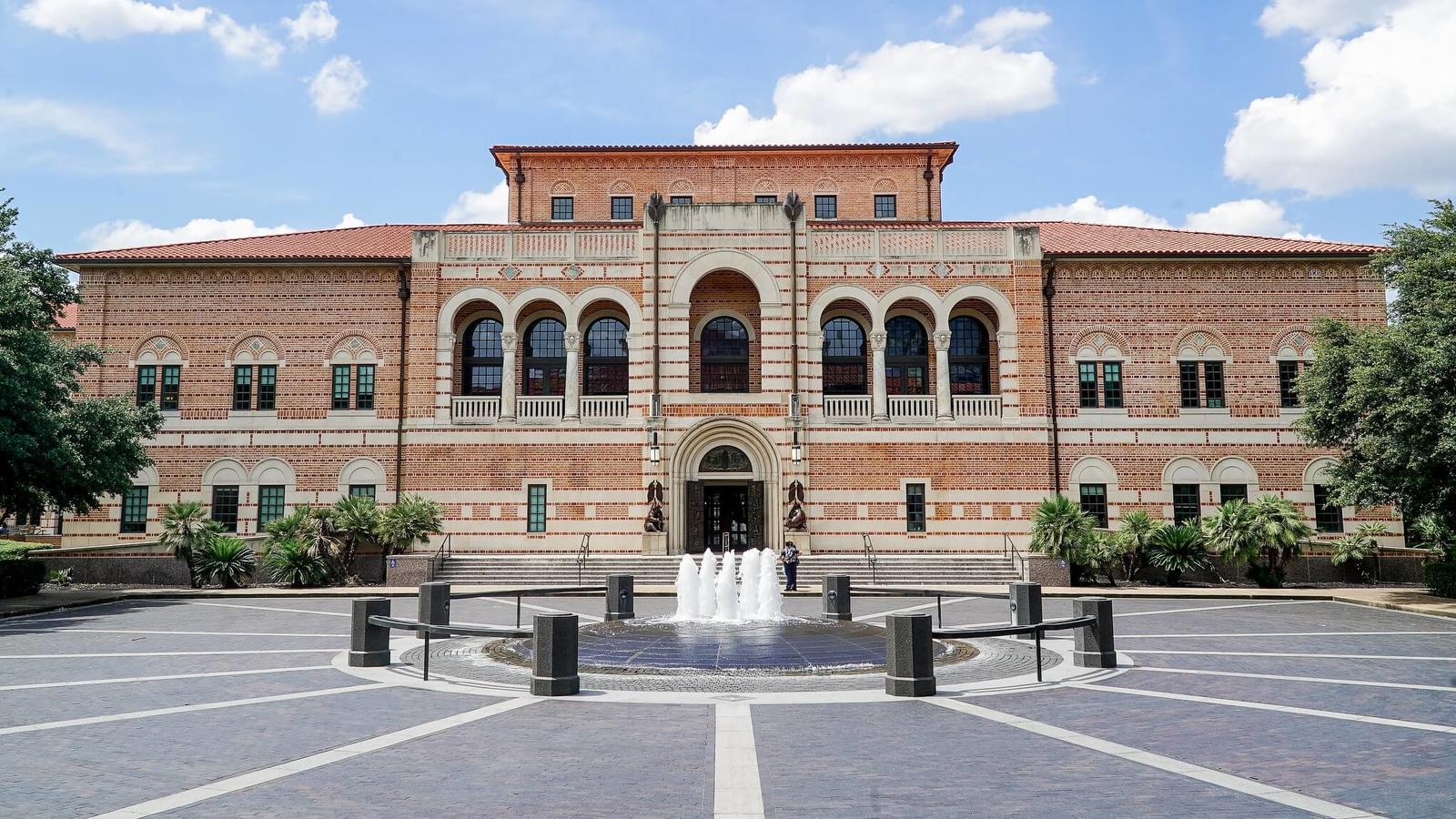
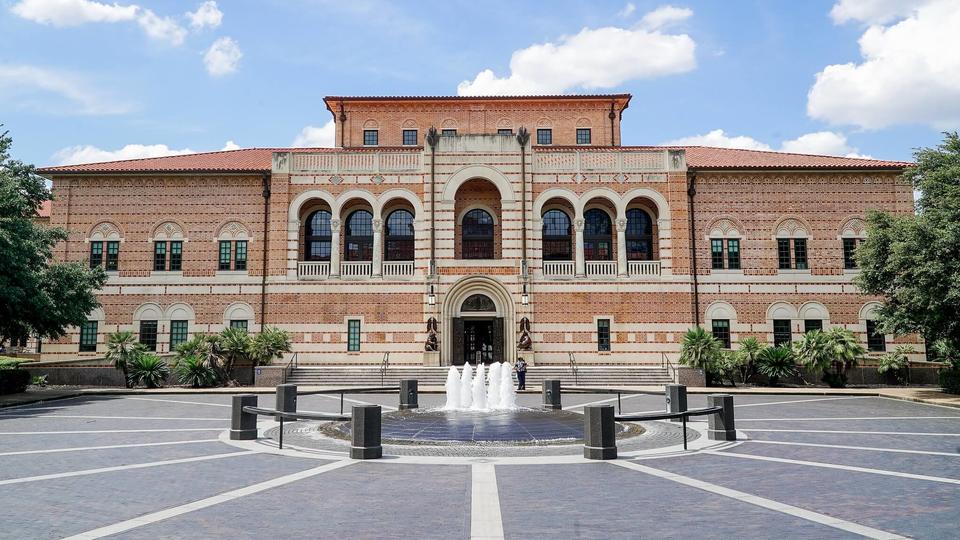
Rice University’s Jones Graduate School of Business has taken the No. 1 spot in the Princeton Review and Entrepreneur magazine's rankings of top schools for graduate entrepreneurship programs for the sixth year running.
The Princeton Review’s 2025 list identifies the 50 undergraduate and 50 graduate schools in the U.S. that offer the best programs in entrepreneurship studies based on its survey of more than 300 institutions. The Princeton Review has partnered with Entrepreneur to report these rankings annually since 2006.
“At Rice Business, our students learn both inside and outside the classroom, drawing on our strong industry and community connections in Houston and beyond,” said Peter Rodriguez, dean of Rice Business. “With small class sizes and tailored programs, we aim to equip our students with the skills to create new ventures and excel in a fast-changing business landscape.”
Rice Business has one of the only MBA programs in the country with an entrepreneurship specialization, and the school has multiple programs and accelerators that provide guidance and support needed to launch and grow businesses. The university’s entrepreneurial ecosystem features a collaborative culture, a willing network of mentors, paths to funding and multiple pitch competitions, including the Rice Business Plan Competition, the largest and richest student startup competition in the world, Rodriguez said. The ecosystem also combines academic courses and co-curricular programs led by the Liu Idea Lab for Innovation and Entrepreneurship (Lilie) and regional, national and co-curricular programs led by the Rice Alliance for Technology and Entrepreneurship.
Students learn from leading professors and practitioners in classrooms and labs but can also take advantage of the lively community of events meant to inspire, competitions to hone business plans or selling points, accelerators that validate ideas and provide resources, and numerous opportunities to network with investors, said Yael Hochberg, head of the Rice Entrepreneurship Initiative and Lilie.
“Our students engage with entrepreneurship throughout their time at Rice Business,” Hochberg said. “From courses to competitions, they’re encouraged to innovate, knowing they have access to support through a network of creative thinkers and successful alumni.”
“We benefit from close connections to Houston’s dynamic business community, where students can pitch their ideas and gain insights from angel investors, venture capitalists and corporate leaders,” said Brad Burke, executive director of Rice Alliance and associate vice president of industry and new ventures in Rice’s Office of Innovation. “These ties foster mentorship opportunities and serve as launchpads, supporting both our students and the broader Houston area.”
To learn more about Rice Business and the entrepreneurship ecosystem at Rice, visit here.
You May Also Like

Rice University’s Jesse H. Jones Graduate School of Business today announced the launch of its Graduate Certificate in Healthcare Management program, a 10-month, credit-bearing professional credential designed for current and aspiring leaders seeking deep expertise in the business of healthcare.
HISD’s Bond Failure
Organizations cannot succeed by rebuking their customers.


Op-Ed by Vikas Mittal
A school district that addresses less than one-third of value for its customers and does not have a sustained history of doing so, is not going to inspire customer confidence.
On Tuesday, November 5, voters defeated the $4.4 billion bond proposal for Houston ISD by a 58% to 42% margin. The bond would have ostensibly enabled HISD to renovate and upgrade schools and improve technological capability.
Since the State-appointed leader, Superintendent Mike Miles, implemented the New Education System (NES) at more than 100 HISD campuses, test scores in reading and math have improved, the number of D- and F-rated NES schools has declined from 63 in 2023 to 14 in 2024, and the number of A- and B-rated schools has increased from 93 to in 2023 to 170 in 2024. Citing these gains, well-funded advocacy groups like Good Reason Houston, Environment Texas, and Greater Houston Partnership vigorously supported the bond.
It should have been an easy sell to residents and taxpayers. Except it wasn’t. And for good reason.
At board meetings, parents and teachers were—at best—torn in their support of the bond. Public voices like the Harris Country Democratic and Republican parties, the Houston Chronicle, and the Houston Federation of Teachers denounced the bond citing a lack of trust in management and a need for better engagement, transparency and accountability with the public.
My research on customer value in educational institutions points to two reasons why the bond might have failed.
First, organizations with long-standing histories of dissatisfying customers period after period cannot expect to win customer confidence with one or two instances of success. As an example, if an airline’s flights have been almost always late in arrival time for multiple quarters, it cannot expect customers to be very satisfied if some of its flights arrived on time one quarter. To convince customers that it is serious about creating value, the airline will have to show a consistent and sustained record of on-time arrival over multiple quarters. It’s the same with HISD’s customers, i.e., the parents and guardians of children.
Without question, the turnaround results are laudable. Yet, the long-standing history of underperforming schools and mismanagement at HISD does not inspire customer confidence with one round of good performance. HISD needs to develop a consistent and sustained record of academic achievement to earn its customers’ confidence and demonstrate its intent and ability to create long-term value for them.
Second, my research with 10,000 parents nationwide, shows that customer value in K-12 contexts is multifaceted. While 29% of value for customers comes from teaching, academics and learning, 39% comes from administration and staff, as well as family and community engagement, with another 15% coming from safety. Districts that excel on all three drivers have highly satisfied customers who re-enroll in—and recommend—the schools, in addition to children having higher test scores. Currently, HISD’s gains in teaching, academics and learning addresses only 29% of customer value, with 54% of the work left undone.
In summary, a school district that addresses less than one-third of value for its customers and does not have a sustained history of doing so, is not going to inspire customer confidence.
The path forward for HISD is multipronged. First, it must build on and embed its gains in student achievement for multiple periods. Families need to be assured the current gains are sustained, not transitory. Second, as its leaders and advocacy organizations celebrate HISD’s gain, they should have the patience and humility to foster engagement and trust with families.
Third, and most critically, HISD should focus on family and community engagement. This is not about public speeches, school tours or distributing donuts and tchotchkes. Rather, my research provides specific execution levers for excellence: administration being easy to contact, going the extra mile to help parents, keeping parents informed about important issues, providing parents avenues to give input in important school policies, encouraging parents to attend student classrooms, the administration’s respect of families’ opinions and clear explanations of how children are assessed.
If HISD’s customers are cautious about giving billions of dollars to an institution that is not creating long-term value for them, the outcome is not “unfortunate or wrong.” These same customers approved a $1.89 billion bond in 2012 with a two-third margin. Organizations cannot succeed by rebuking their customers.
Only after a sustained track record of academic success and positive community and family engagement in safe schools will HISD earn its customers’ confidence. We all want the best for HISD, a treasured organization for Greater Houston. Under Superintendent Miles, HISD’s journey to successfully serve its community is only starting and we are grateful for his leadership.
Vikas Mittal, Ph.D. is the J. Hugh Liedtke Professor of Marketing at Rice University’s Jones Graduate School of Management and the faculty director of Rice’s Center for Customer-Based Strategy and Execution. He enabled senior executives at more than 200 organizations develop and implement strategy. He is the co-author: FOCUS: How to Plan Strategy and Improve Execution to Achieve Growth (2021) and the Strategic Decision Making: Learnings & Reflections (2024).
Never Miss A Story
You May Also Like
Keep Exploring
Diverse Teams Inspire Low-Power Employees To Be More Creative
Low-power employees in diverse teams produce ideas with greater novelty and utility — even long after their team experience.


Based on research by Jing Zhou (Rice Business), Inga J. Hoever (Erasmus University Rotterdam), Nathan E. Betancourt (University of Amsterdam) and Guoquan Chen (Tsinghua University)
Key findings:
- Low-power employees in highly diverse groups produce more creative publications, scoring higher in novelty and utility compared to their less diverse counterparts.
- The study of Manhattan Project scientists showed that the positive impact of educational diversity persisted beyond the project itself.
- For high-power employees, team diversity had little impact on creativity; their creative output remained relatively stable regardless of team composition.
Why do some employees hesitate to share bold ideas while others take creative risks?
New research shows that the answer isn’t just about talent — it’s about team dynamics. Employees with less power are more likely to innovate when they work in diverse teams, where a variety of perspectives inspire them and spark creative thinking.
Creativity does not occur in a vacuum. Innovative ideas are an inherently social phenomenon that grow out of an organization’s culture and the relationships of the people working within it. But in any organization, power is distributed unequally, and that affects how creative people can be.
By their very definition, creative ideas don’t conform to current norms. Employees are less creative when they feel pressure to conform at work. Those with little power are more cautious, playing it safe to avoid losing their standing, while those with more power feel confident enough to take bold, creative risks.
An employee’s power and status might shield them from the pressure to conform, but that’s not the whole story. According to a new study by researchers including Jing Zhou (Rice Business), diversity can ignite creativity, especially for employees with lower levels of workplace power.
“Diversity can promote creativity evoking an awareness of new ideas and different ways of understanding the world,” Zhou says. “Diversity creates a context where inspiration is built in — and that, as a result, encourages creativity.”
In their work published in the prestigious journal Organizational Behavior and Human Decision Processes, Zhou et al. conduct three rigorous studies across different contexts, examining employee diversity in terms of nationality, cognition and education. The convergence of findings from these varied settings strengthens the validity and generalizability of the research.
A Case Study: The Manhattan Project
To analyze the impact of educational diversity, for example, the research team analyzed the publications of scientists who worked on the Manhattan Project, a secret nuclear weapons research and development program led by the U.S. Army Corps of Engineers during World War II. The Manhattan Project took place from 1943-47, and at its peak, employed nearly 130,000 people at more than 30 top-secret sites across the United States and Canada.
Unlocking the power of the atomic bomb was anything but simple and executing such a large and complex project required diverse expertise. Manhattan Project leadership was able to convene that expertise by seeking out leading researchers in chemistry, metallurgy, physics, engineering and other relevant disciplines.

The Manhattan Project maintained detailed records, and Zhou’s research team analyzed archival data on approximately 300 scientists who worked at the Los Alamos site. For 90 of them, there was complete data about the diversity of educational backgrounds in the division for which they worked, and Zhou’s research zeroed in on this group of scientists.
A scientist’s level of power was classified based on whether they had a leadership role in their division, had been the head of their research group or were simply a member of the team. And more than 3,000 academic publications by these scientists were given a creativity score based on their novelty and utility.
To quantify the effect of the Manhattan Project on creativity, the study looked at the scientists’ publications in the decade before the project began and the decade after it ended. For scientists who had leadership roles, there was little to no effect on their creativity. But for those with low levels of power, the effect was pronounced.
When a scientist had a low level of power and worked in a group with a low level of educational diversity, creativity was negatively affected. But when a researcher’s level of power was low and the researchers in their group came from a greater variety of educational backgrounds, creativity increased.
Put another way, members of research groups that were more diverse during the Manhattan Project were still demonstrating heightened levels of creativity many years later.
“A lot of previous work on the interplay between power and creativity is pretty bleak. It views power only as an impediment to creativity, and even in the flattest of organizational structures, power will be distributed unevenly,” says Zhou.
“But our findings point toward ways that managers might tap into the full creative potential of their team. Diversity can be a source of inspiration and expose people to new ideas and different ways of approaching a problem. Employees with low levels of power are the ones whose creativity benefits the most from it.”
Hoever, Betancourt, Chen, and Zhou (2023). “How Others Light the Creative Spark: Low Power Accentuates the Benefits of Diversity for Individual Inspiration and Creativity.” Organizational Behavior and Human Decision Processes.
Mary Gibbs Jones Professor of Management and Psychology – Organizational Behavior
Never Miss A Story
You May Also Like
Keep Exploring
Rice to honor veterans at annual ceremony Nov. 11
Rice University will recognize Owls who have served in the United States military, including the veterans among faculty, staff and students, at its 21st annual Veterans Day Ceremony at 11 a.m. Nov. 11 in Rice Memorial Chapel and Ray Courtyard. Kyle La Rue, copy center assistant from Rice Business, is this year’s honoree.
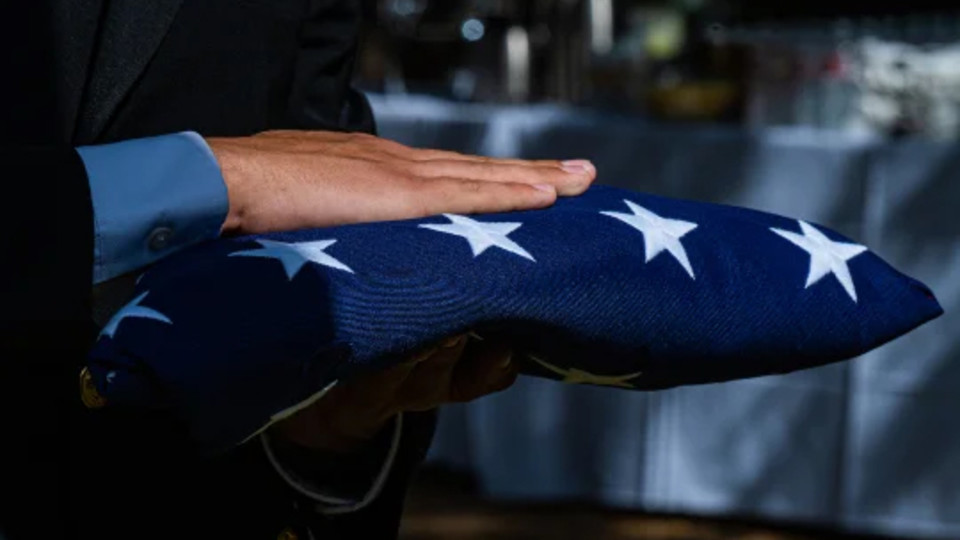
Rice University will recognize Owls who have served in the United States military, including the veterans among faculty, staff and students, at its 21st annual Veterans Day Ceremony at 11 a.m. Nov. 11 in Rice Memorial Chapel and Ray Courtyard.
Kyle La Rue, copy center assistant from the Jones Graduate School of Business, is this year’s honoree. The ceremony will feature opening music by the Mini MOB; a performance of “The Star-Spangled Banner” by Shepherd School of Music graduate student Colin Miller; remarks by Naval ROTC Midshipmen 3rd Class Michaela Menka; and a keynote address by retired Navy Capt. Chuck Hewell.
Following the ceremony, veterans may enjoy a barbecue luncheon and photo booth in Farnsworth Pavilion.
The Veterans Day planning committee includes Safety Specialist Lauren Casady, Senior Employee Relations Specialist Tina Jackson, Rice Center for Engineering Leadership Executive Director Kazimir Karwowski, Archivist Librarian Traci Patterson and Rice Neuroengineering Initiative Associate Director Nichole Wood.
Beyond Veterans Day, Rice honors people who have served in the military with several benefits throughout the year.
Veteran education benefits are available to qualified full- or part-time Rice students or employees who are active duty or reserve military personnel, veterans or in some cases the dependents of deceased or disabled veterans whose death or disability is a direct result of their military service.
Additionally, Rice Business participates in the Yellow Ribbon Program at the highest level possible for all MBA programs. This means veterans who meet the length of service requirement are able to obtain funding for up to 100% of tuition and fees, a monthly housing allowance and an annual book stipend. Visit business.rice.edu/military for more information.
You May Also Like

Rice University’s Jesse H. Jones Graduate School of Business today announced the launch of its Graduate Certificate in Healthcare Management program, a 10-month, credit-bearing professional credential designed for current and aspiring leaders seeking deep expertise in the business of healthcare.

